– Transparent Territory
– Vehicle
– Calligraphy and Cartography
– Nearfar Object
– Ecstatic Cartography
– Feral Map
– Vertical Aerial
– Agglomorate
– Depths in Feet
– Garden Carpet / Prayer Carpet
– Sculpture
– Vehicle
– Calligraphy and Cartography
– Nearfar Object
– Ecstatic Cartography
– Feral Map
– Vertical Aerial
– Agglomorate
– Depths in Feet
– Garden Carpet / Prayer Carpet
– Sculpture

TRANSPARENT TERRITORY –
In his dizzying new series of
maps for groundlessness, Gerhard Marx continues his investigations into the
formal and fictive possibilities of perspective. Rupturing the flat surface of
the map, he removes the illusion of solid ground and replaces it with a
hovering, vertigo-inducing sense of uncertainty. The shape and notion of ‘the
frame’ recurs in several mise-en-abymesequences across the works. Stacked in recurring configurations, its
rectangular form has been bent into a series of optical riddles or Escherian
landscapes.
When Marx cuts into the map it is a kind of violation – an act of violence against the institutions and processes of global modernity through which the world was filtered to him. That violence is present in the energy of dispersion, ruination and collapse that ripples through the fragmented surfaces of these works. But the story does not end with deconstruction. Offsetting it is the meditative, embodied practice of reconstitution. In constructing his drawings from the ‘found lines’ of decommissioned and discarded maps, Marx displaces the scientific authority of cartography with the subjective impulse of calligraphy.
When Marx cuts into the map it is a kind of violation – an act of violence against the institutions and processes of global modernity through which the world was filtered to him. That violence is present in the energy of dispersion, ruination and collapse that ripples through the fragmented surfaces of these works. But the story does not end with deconstruction. Offsetting it is the meditative, embodied practice of reconstitution. In constructing his drawings from the ‘found lines’ of decommissioned and discarded maps, Marx displaces the scientific authority of cartography with the subjective impulse of calligraphy.
To some
extent, his map drawings call to mind mounting tensions within South Africa in
relation to the land – the pain of dispossession, rage due to the slow pace of
redistribution, anxiety around the threat of violent land grabs – all bound up
in a shifting network of inherited lines and limits that divide the land into
territory, domain and jurisdiction. But the works in this series are not only
constituted of South African maps. They are random amalgamations of fragments
of Europe (many of the original maps referred to the First World War) and
Africa, and in piecing them together he conflates space and historical time
(some are recent maps, whereas some date back to the early 20th
century) into what he thinks of as ‘migrant maps’.
Directly referencing the the kind of makeshift, hybridised vessels we’ve witnessed people resorting to in the current migration crises of Europe, several of the works in this series have a raft-like look about them – temporary, floating, drifting between land(s) and territories. Hovering against a plane of deep opaque blackness, Marx’s reconstructed rafts/crafts transmit a sense of disorientation that is simultaneously disquieting and liberating. There is that vertiginous sci-fi sense of being cut loose from the mother ship to float indefinitely through all space and time, but also an ecstatic sense of possibility in being released from the grip of inherited systems of knowledge, measurement, power and control. – Alexandra Dodd
Directly referencing the the kind of makeshift, hybridised vessels we’ve witnessed people resorting to in the current migration crises of Europe, several of the works in this series have a raft-like look about them – temporary, floating, drifting between land(s) and territories. Hovering against a plane of deep opaque blackness, Marx’s reconstructed rafts/crafts transmit a sense of disorientation that is simultaneously disquieting and liberating. There is that vertiginous sci-fi sense of being cut loose from the mother ship to float indefinitely through all space and time, but also an ecstatic sense of possibility in being released from the grip of inherited systems of knowledge, measurement, power and control. – Alexandra Dodd
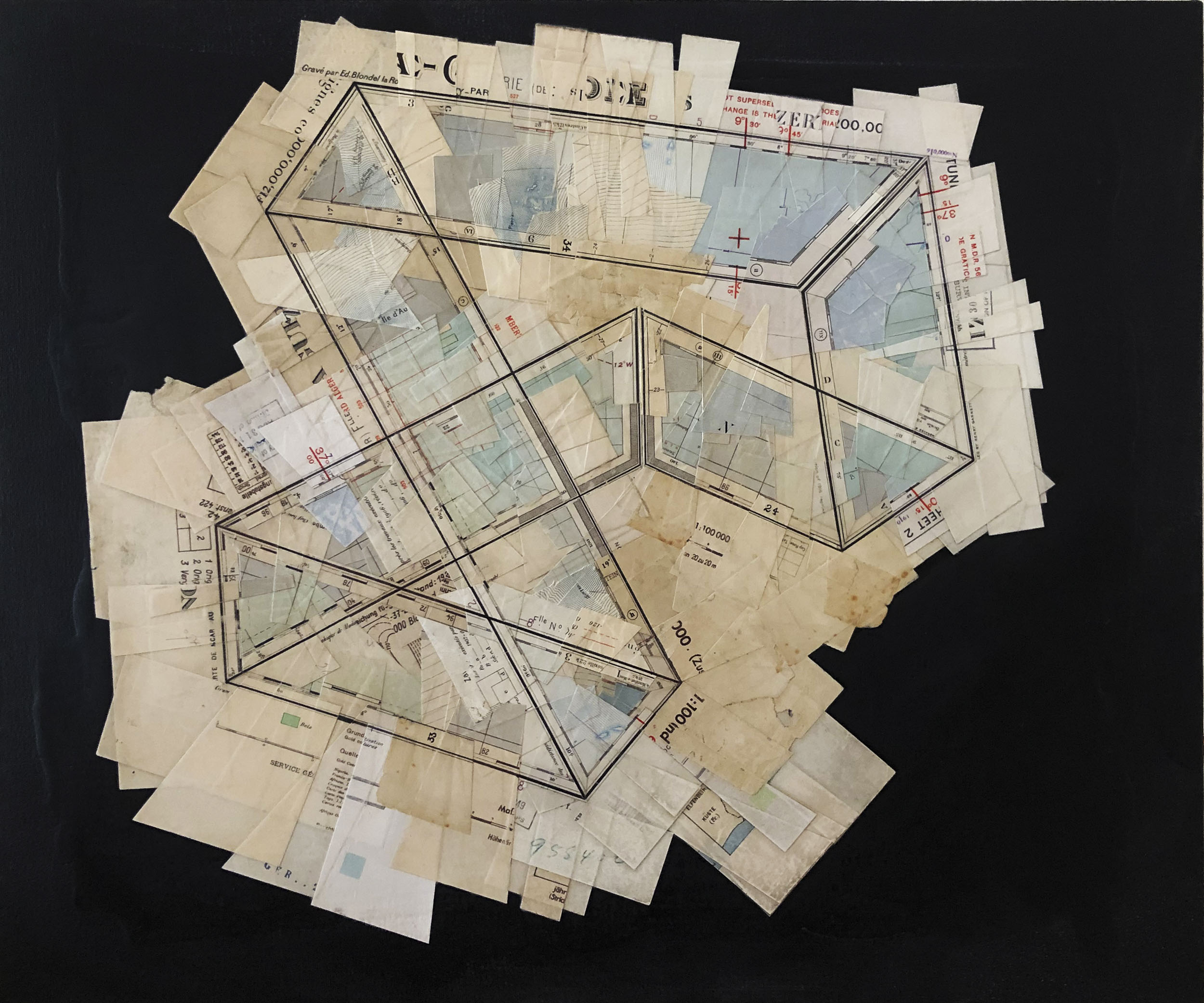
Ocean Crossing, 2019
Reconfigured Map fragments on Acrylic-Polyurethane Ground and Canvas
60 x 50cm

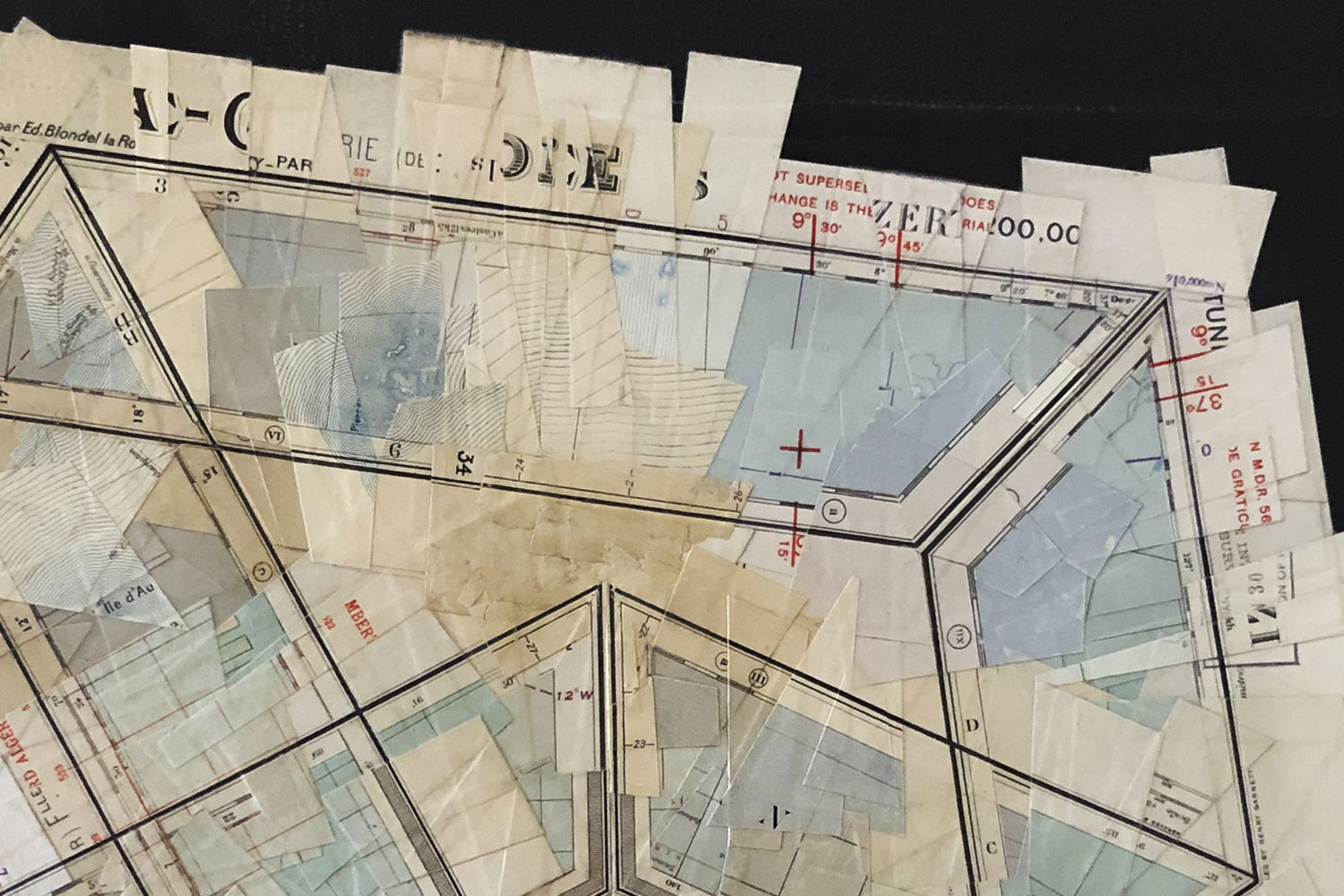
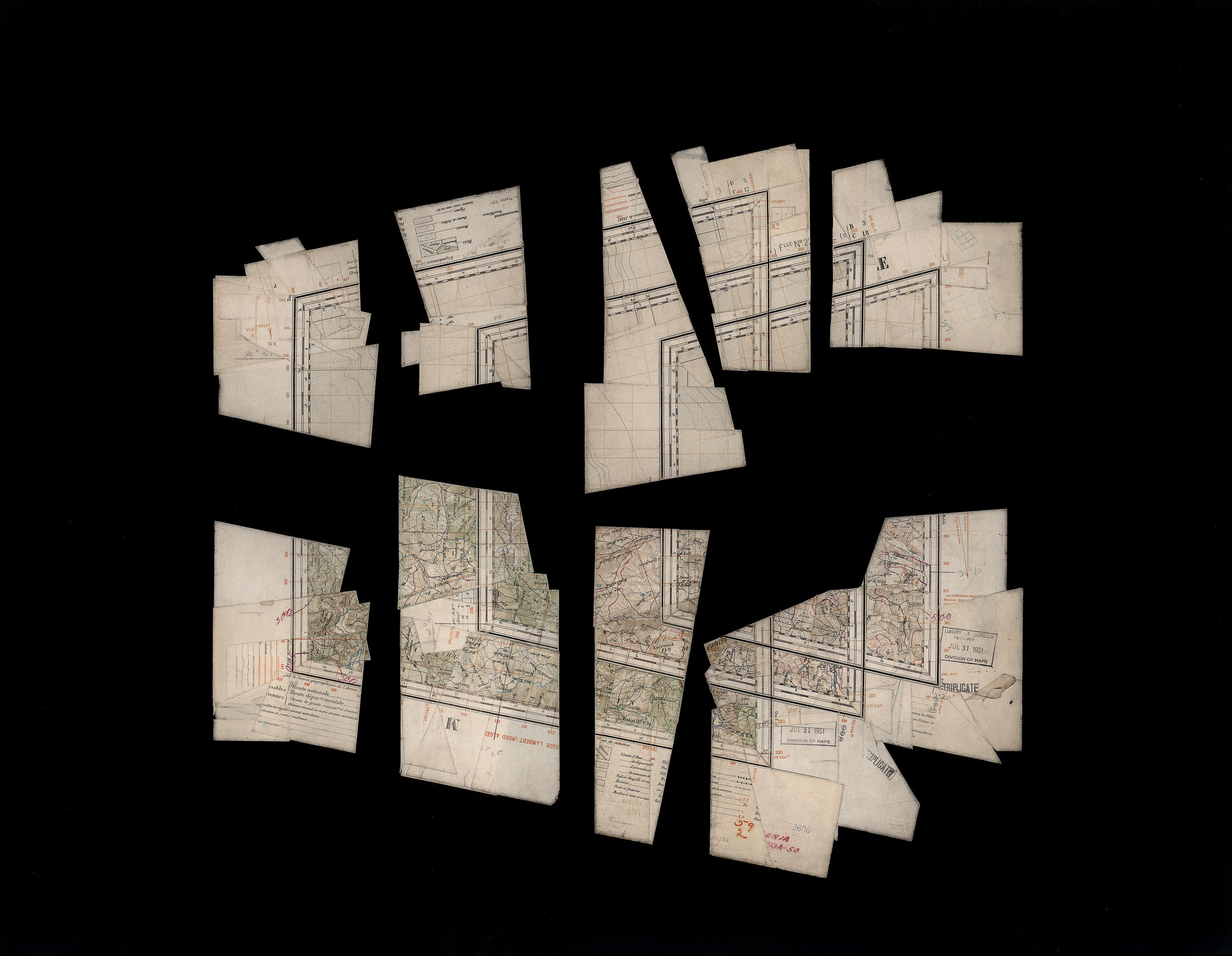
Triplicate, 2018
Reconfigured Map fragments on Acrylic-Polyurethane Ground and Canvas
70 x 90cm
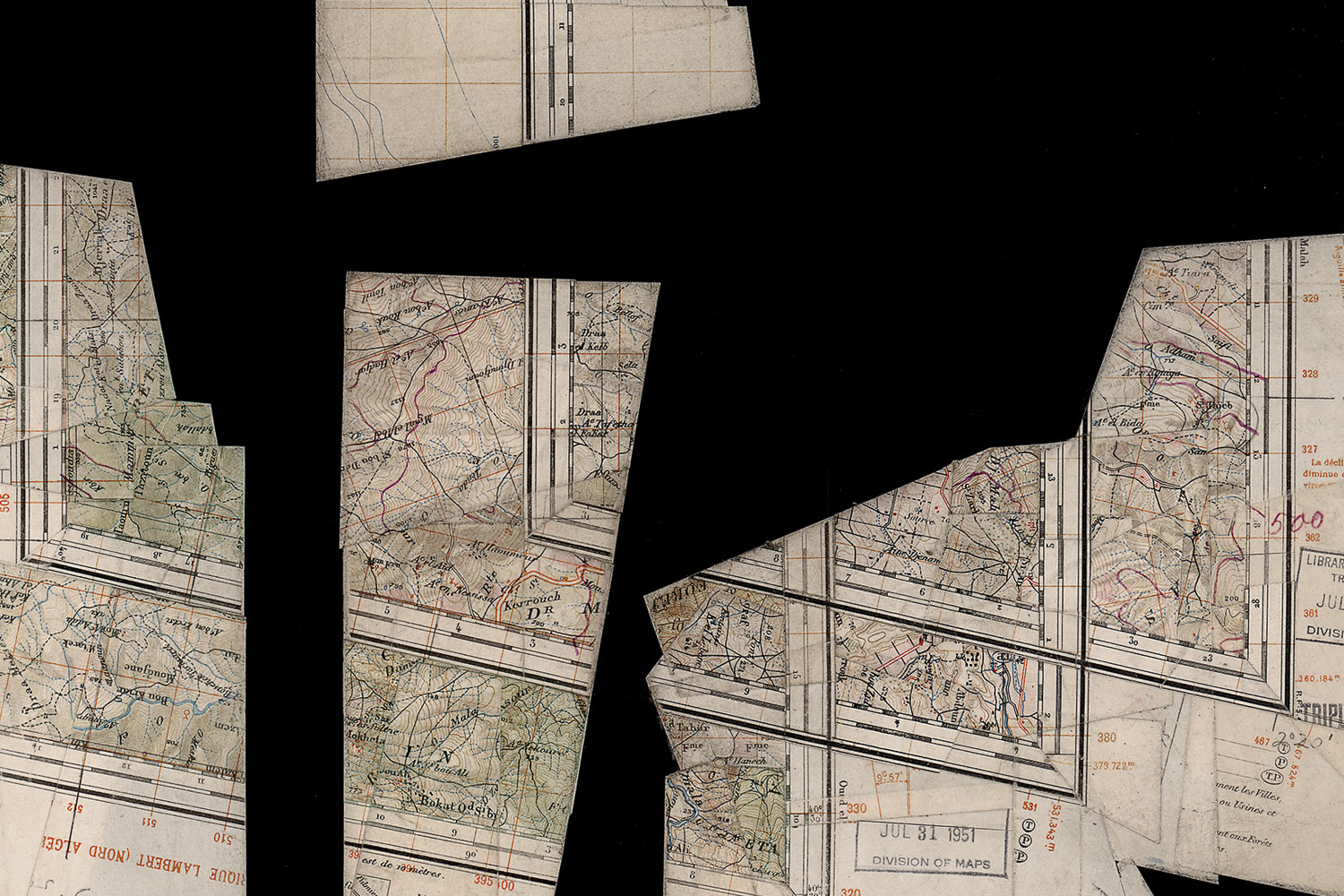
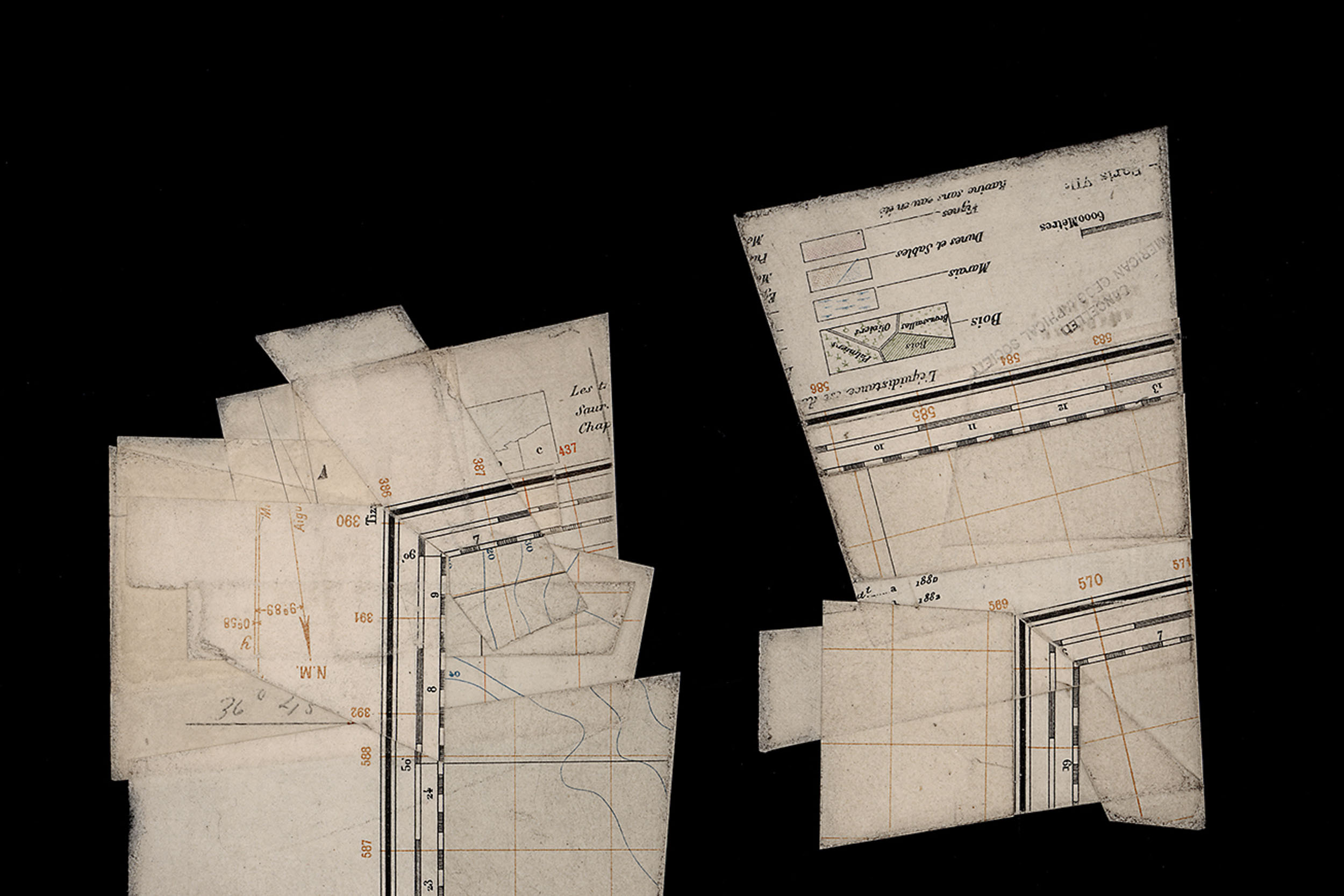
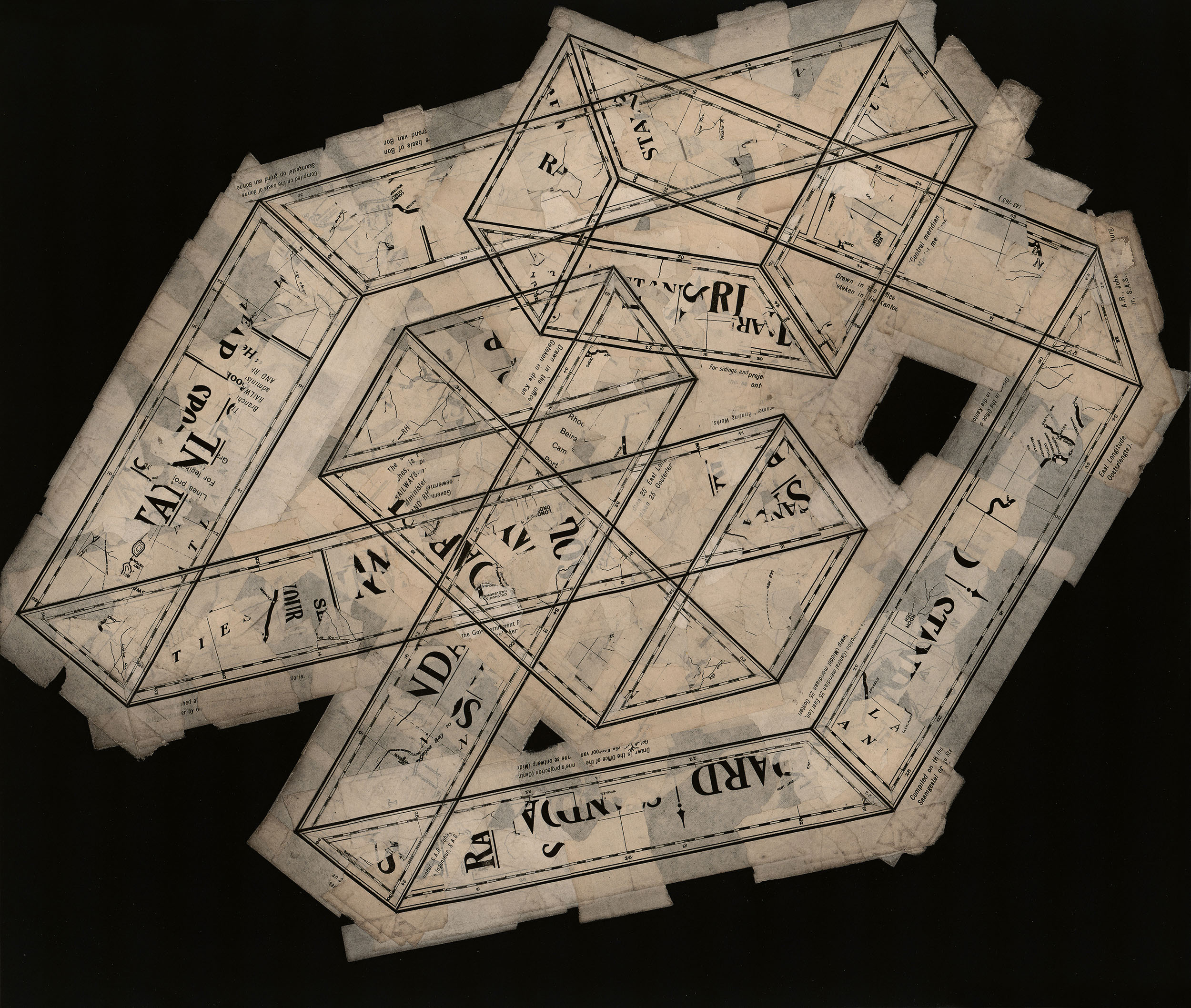
Room, 2018
Reconfigured Map fragments on Acrylic-Polyurethane Ground and Canvas
50 x 60cm

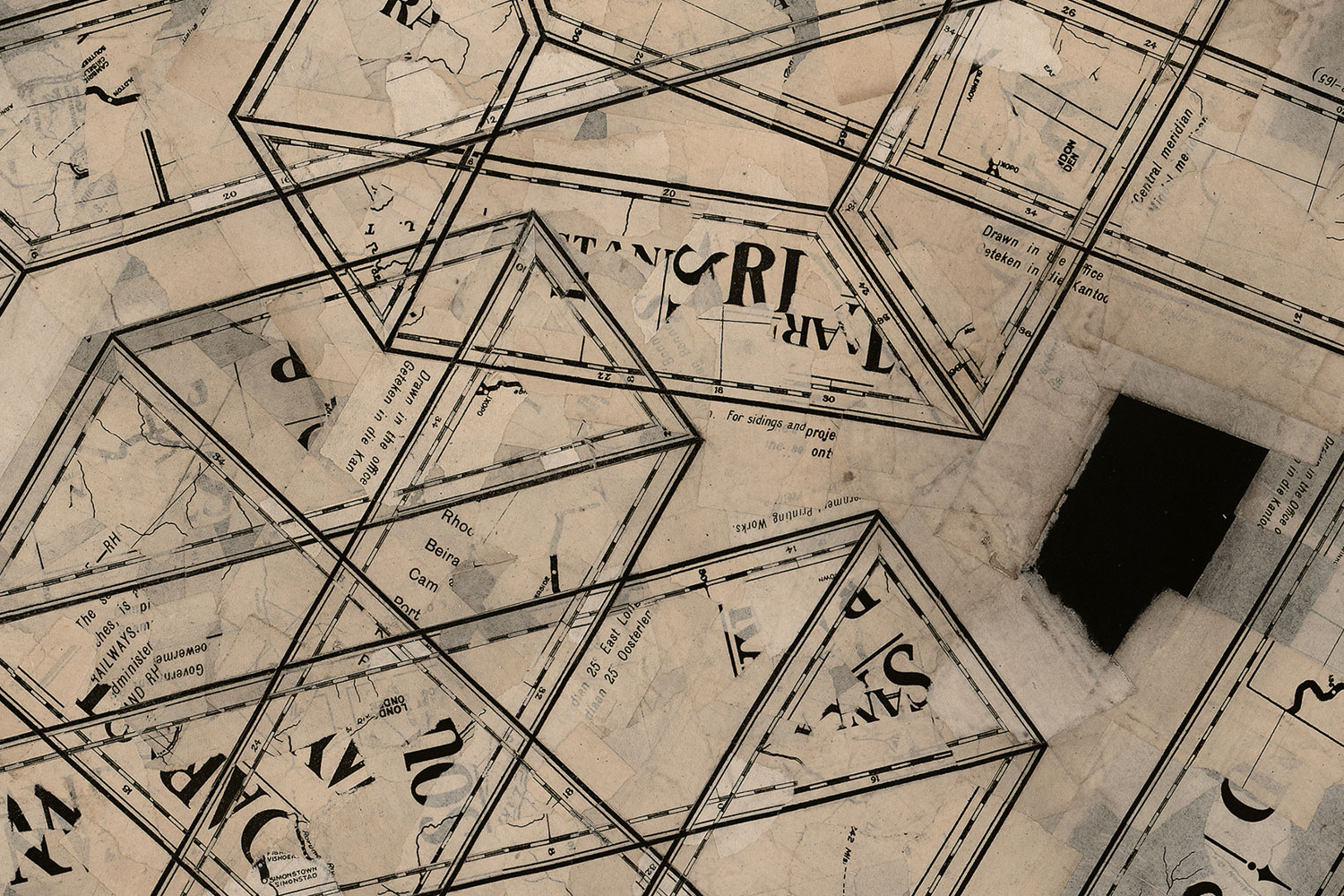
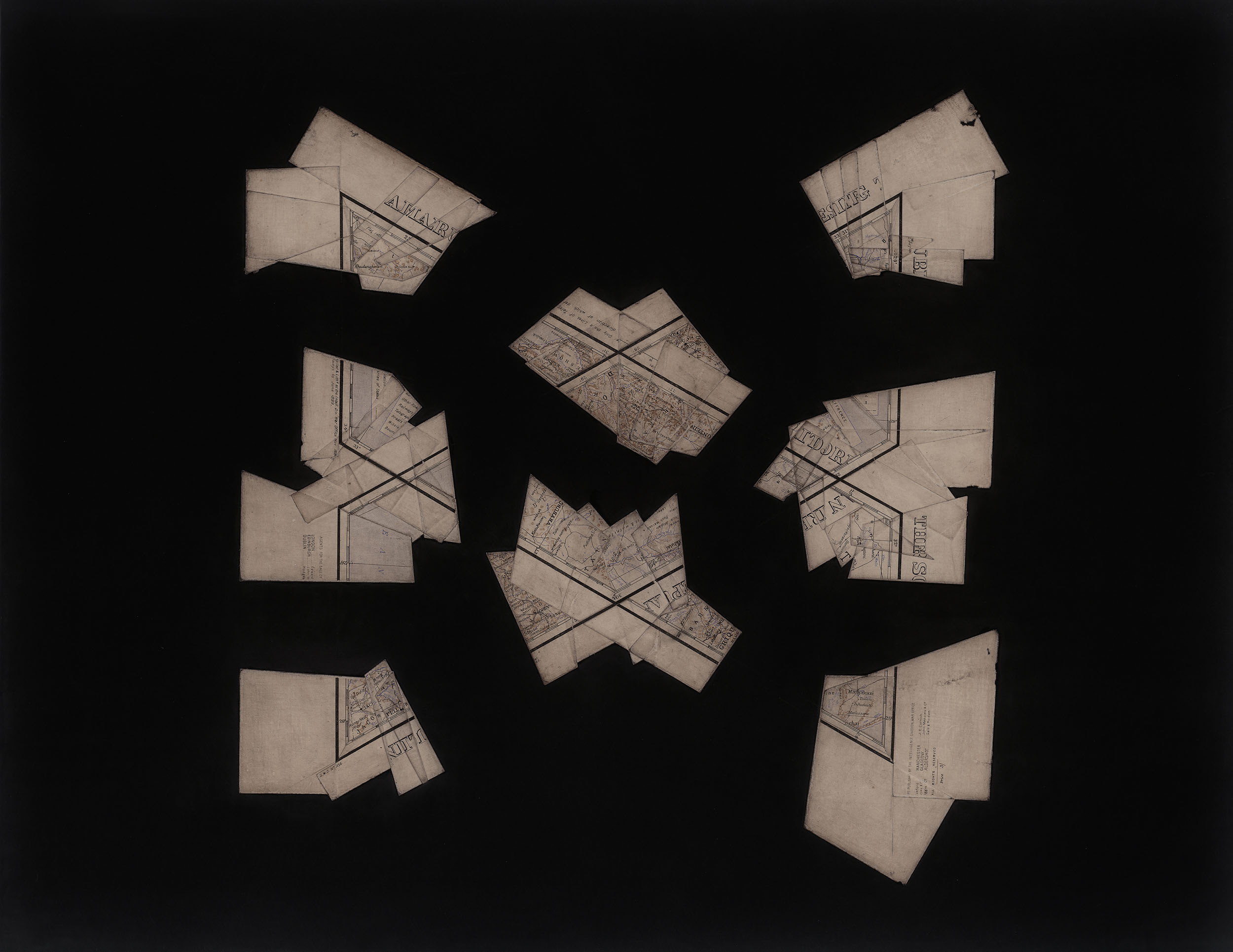
Crossing, 2017
Reconfigured Map fragments on Acrylic-Polyurethane Ground and Canvas
70 x 90cm

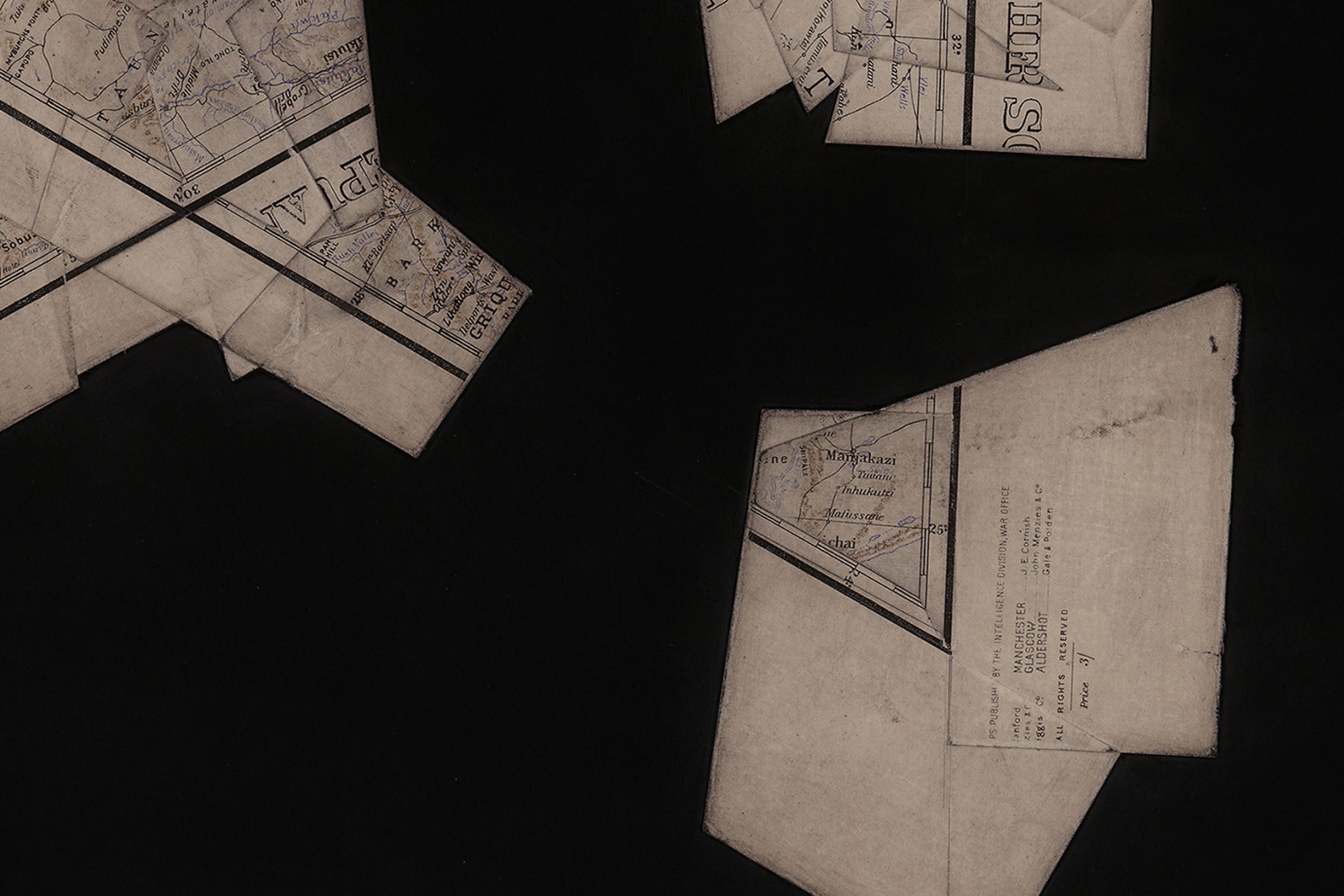
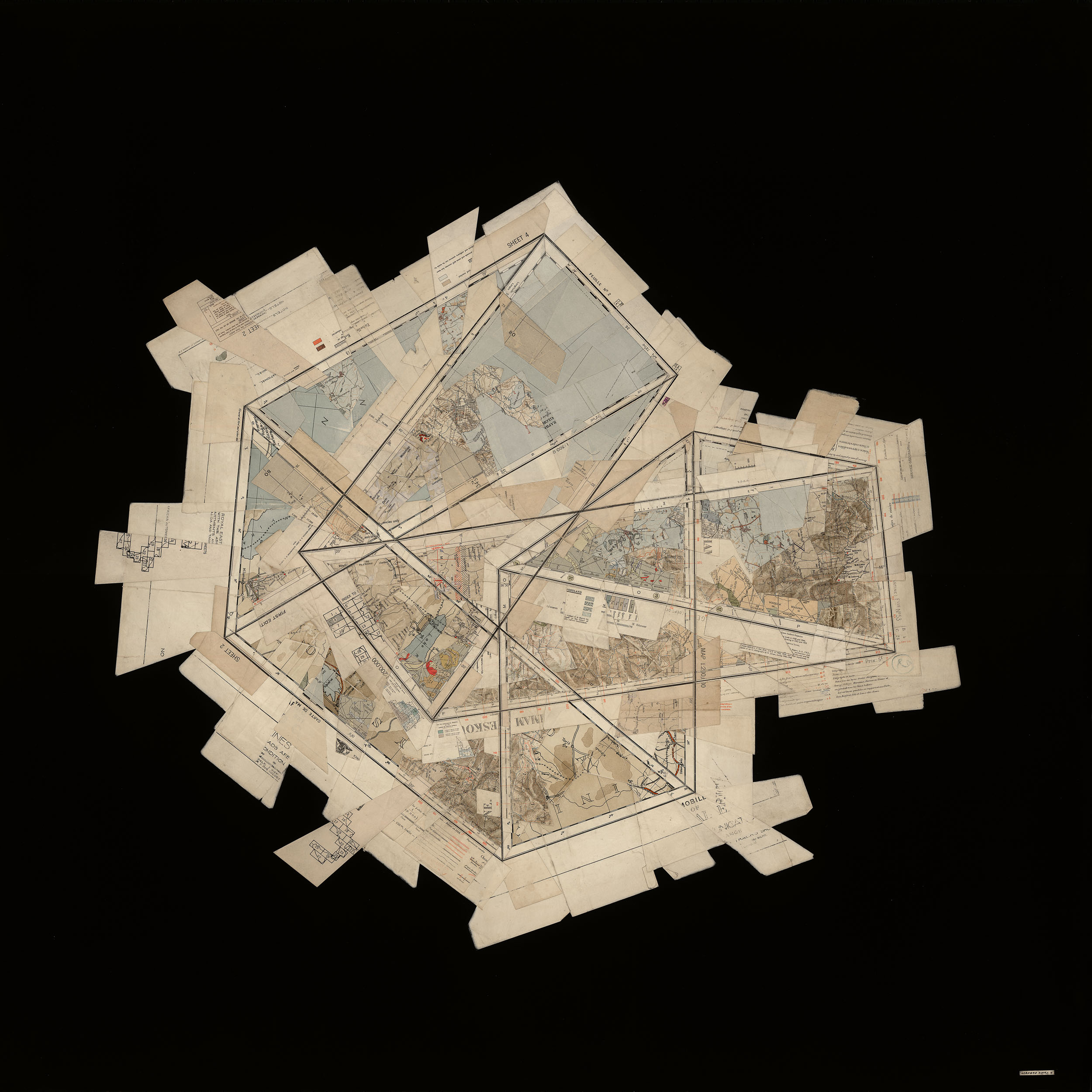
Dwell, 2018
Cut and Reconstituted Map Fragments on Acrylic Ground and Canvas
120 x 120cm
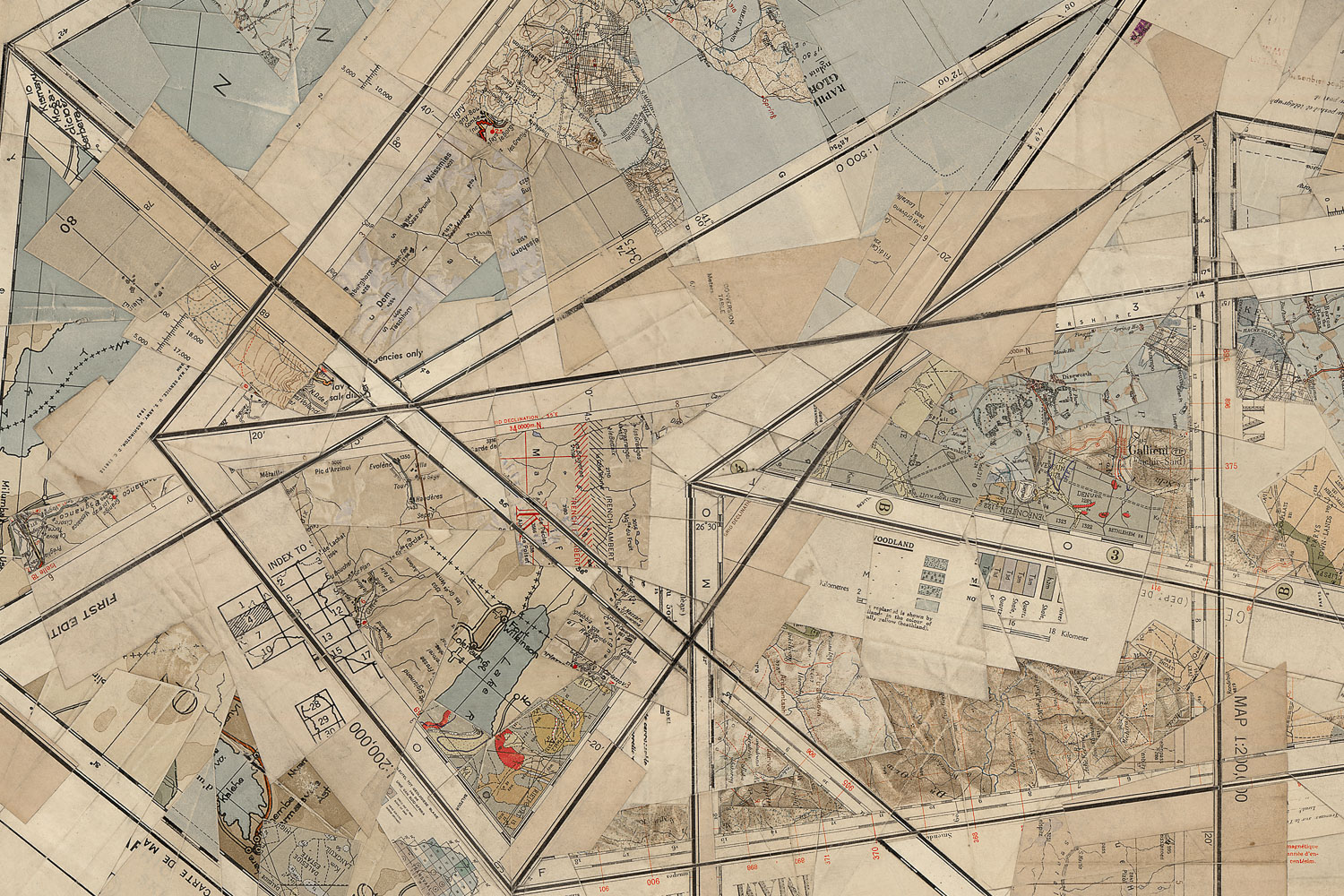
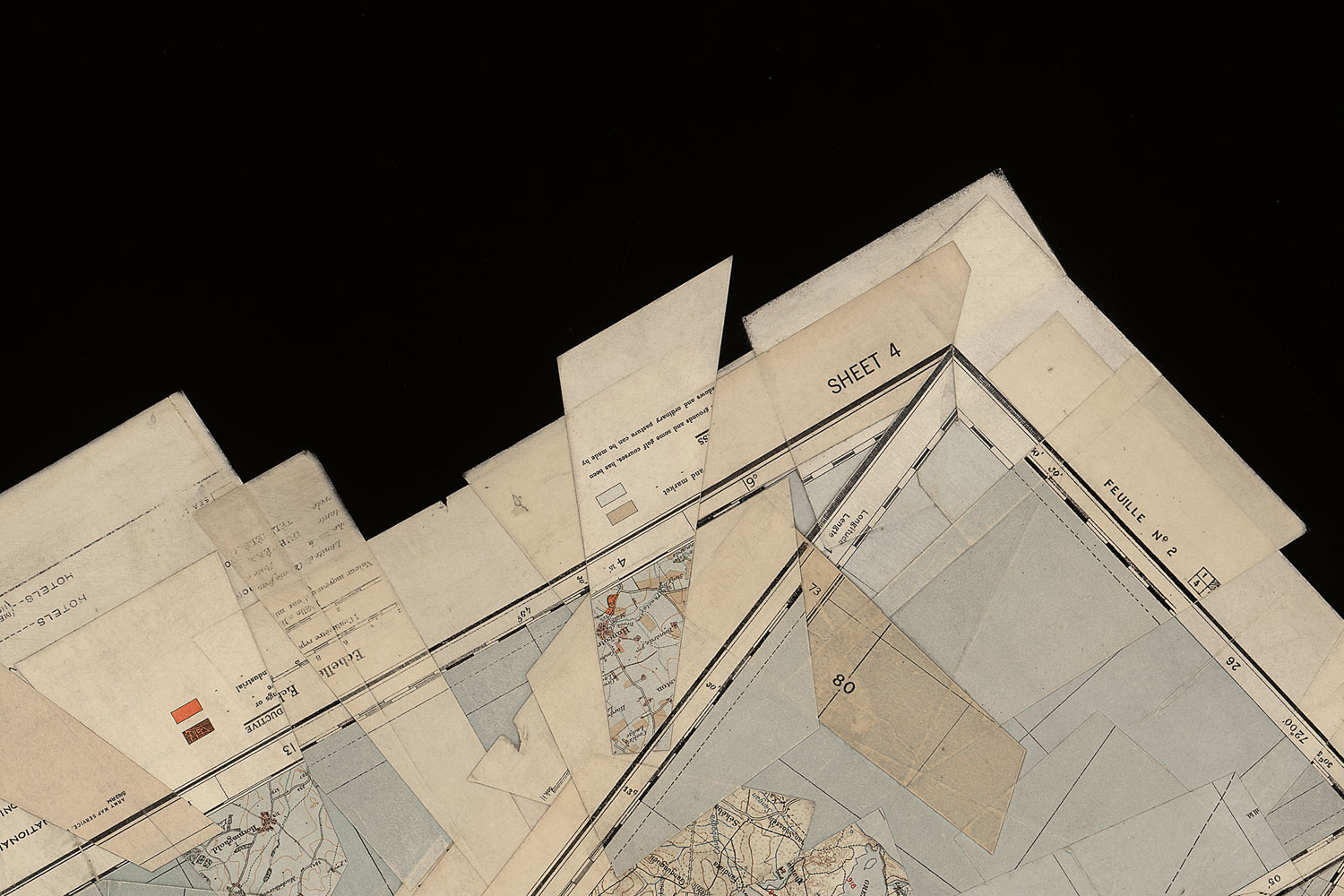
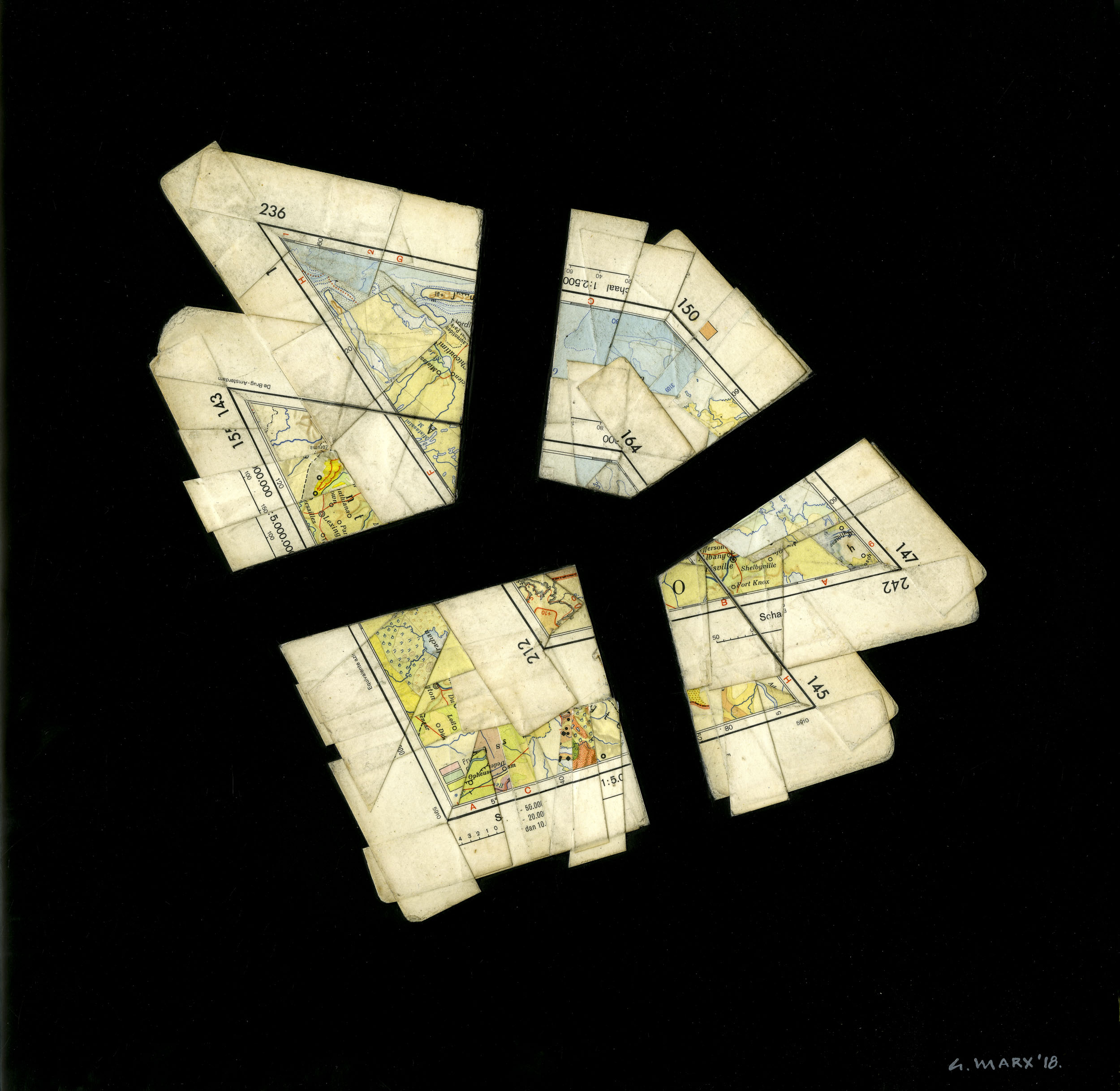
Echo, 2018
Reconfigured Map fragments on Acrylic-Polyurethane Ground and Canvas
30 x 30cm
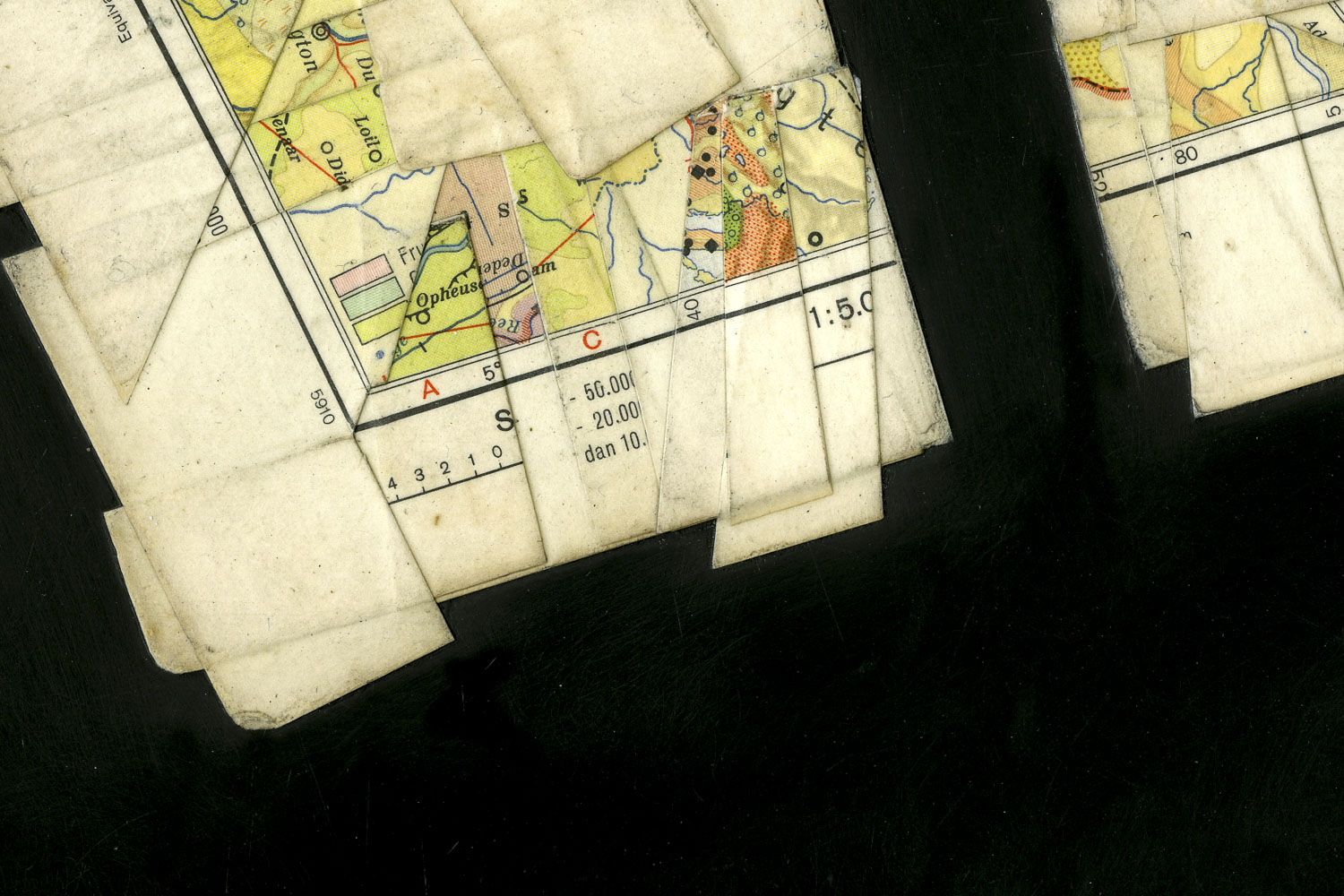
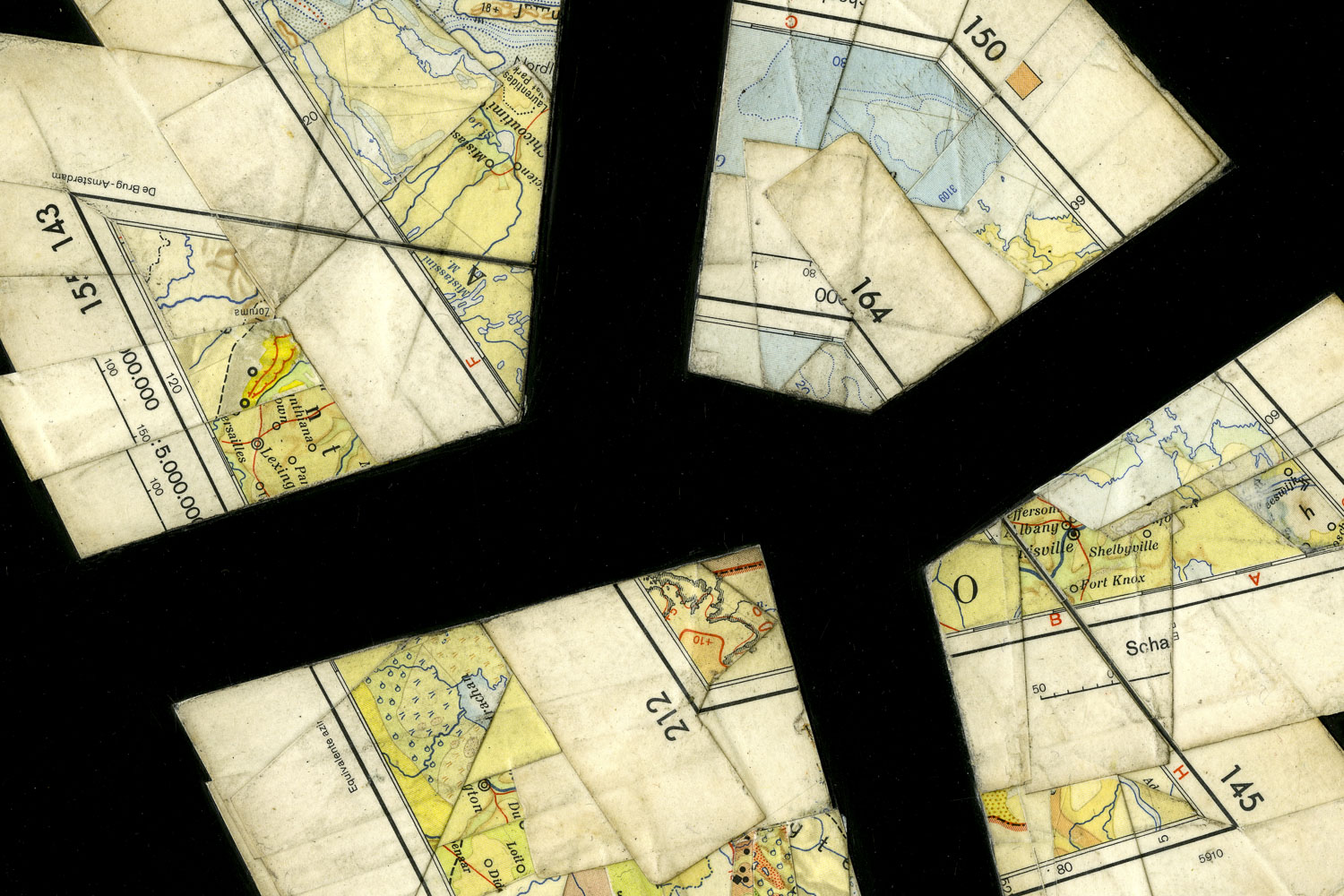
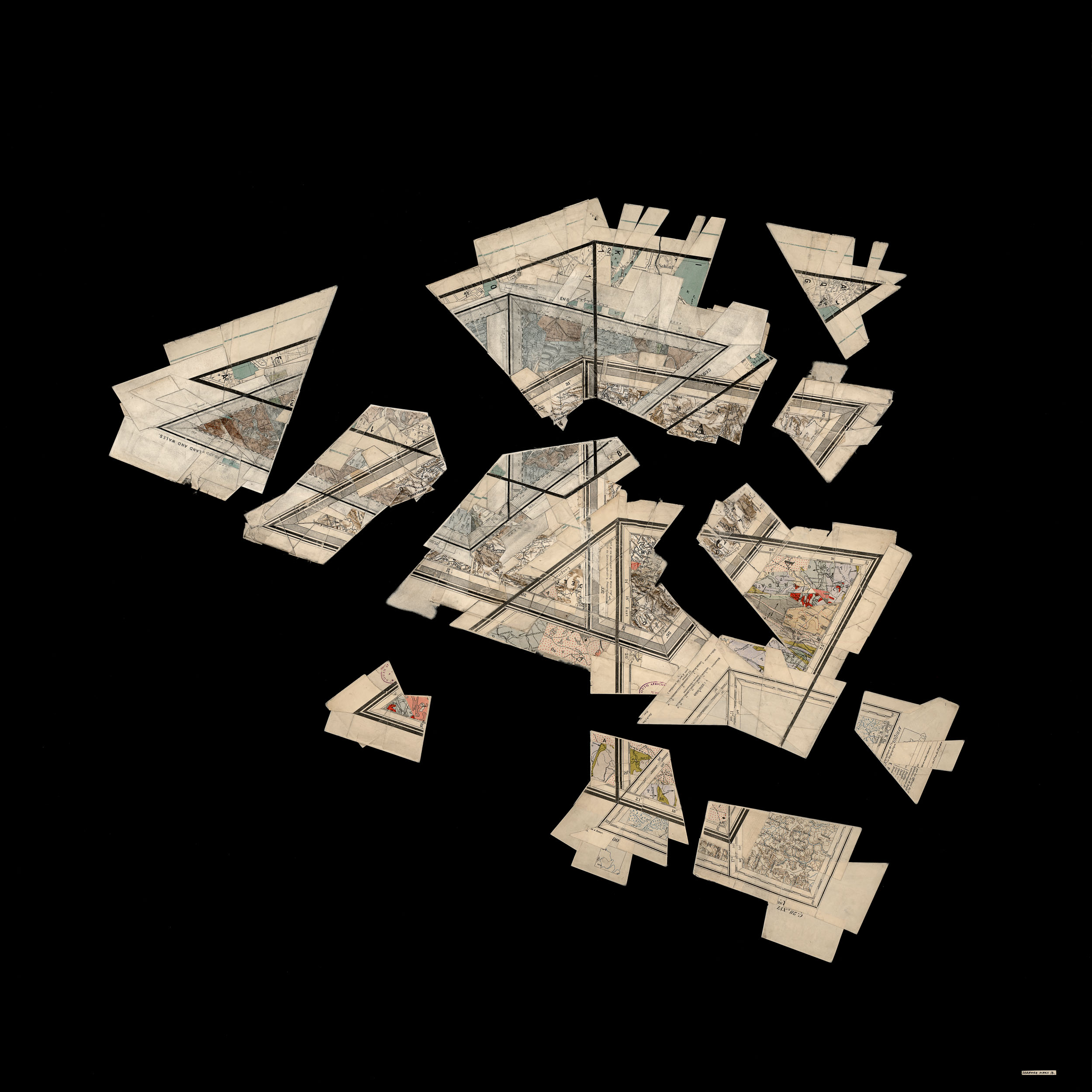
Five Holes in the Same Place, 2018
Cut and Reconstituted Map Fragments on Acrylic Ground and Canvas
120 x 120cm
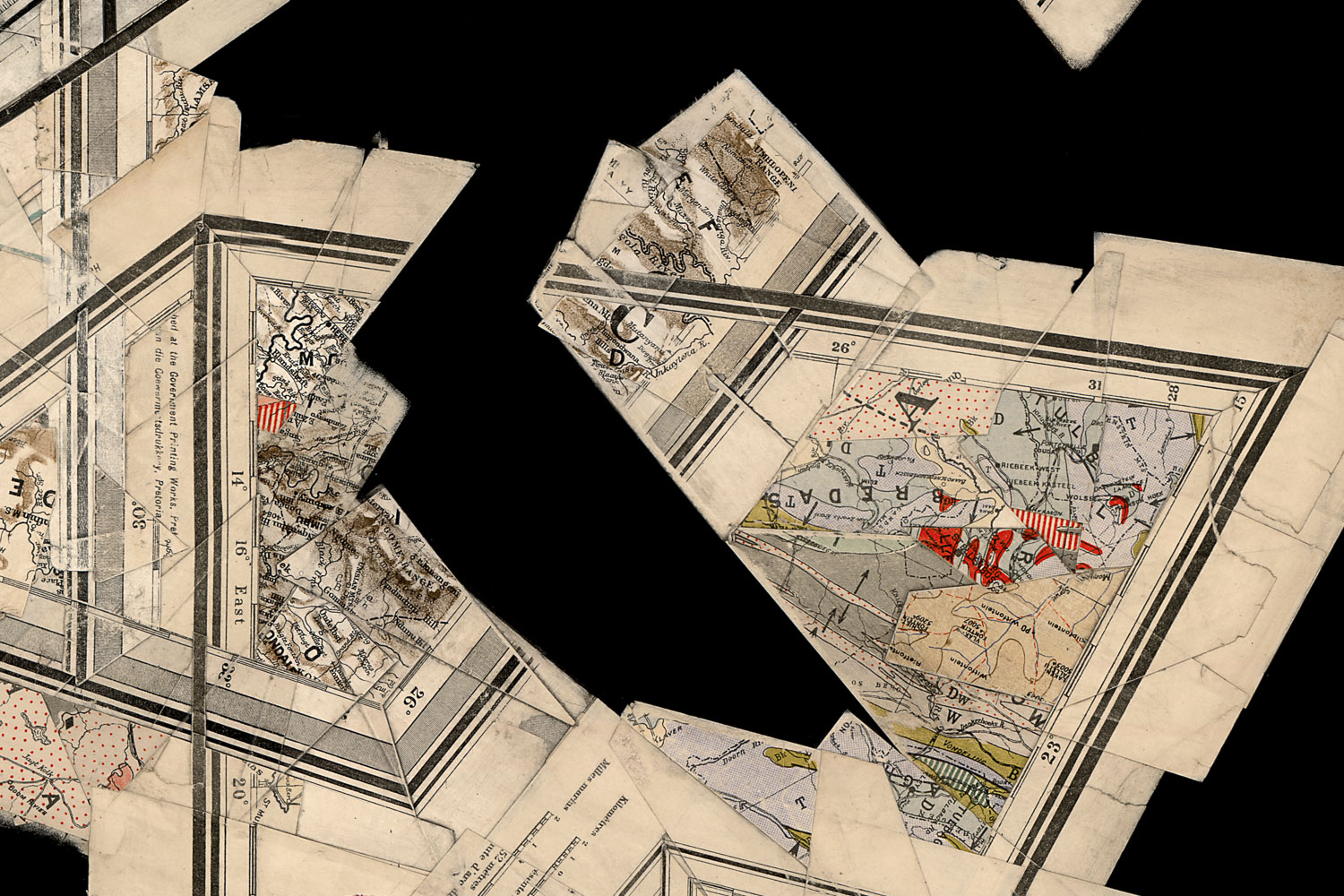

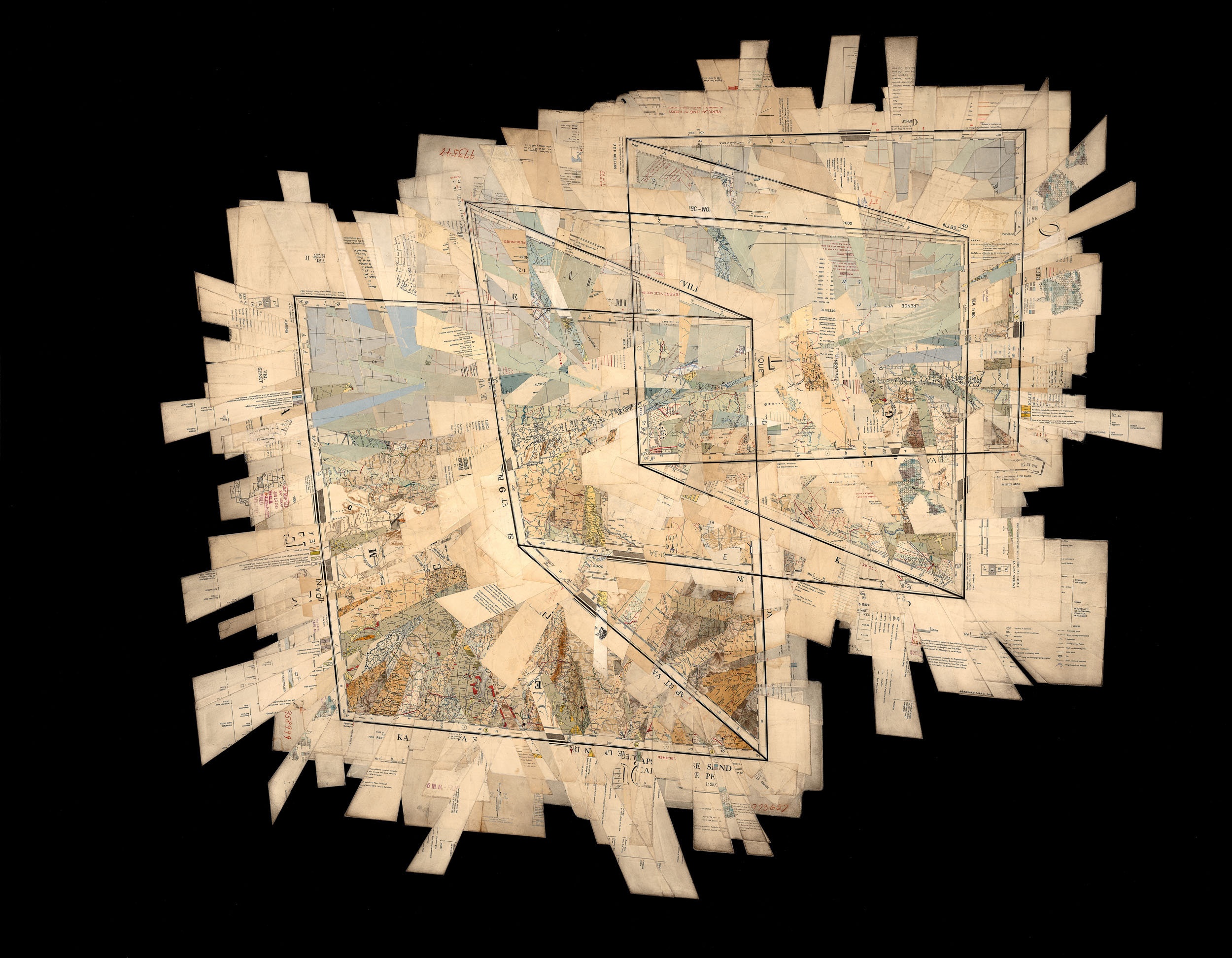
Landscape Study, 2018
Reconfigured Map Fragments on Acrylic-Polyurethane Ground and Canvas
140 x 180cm
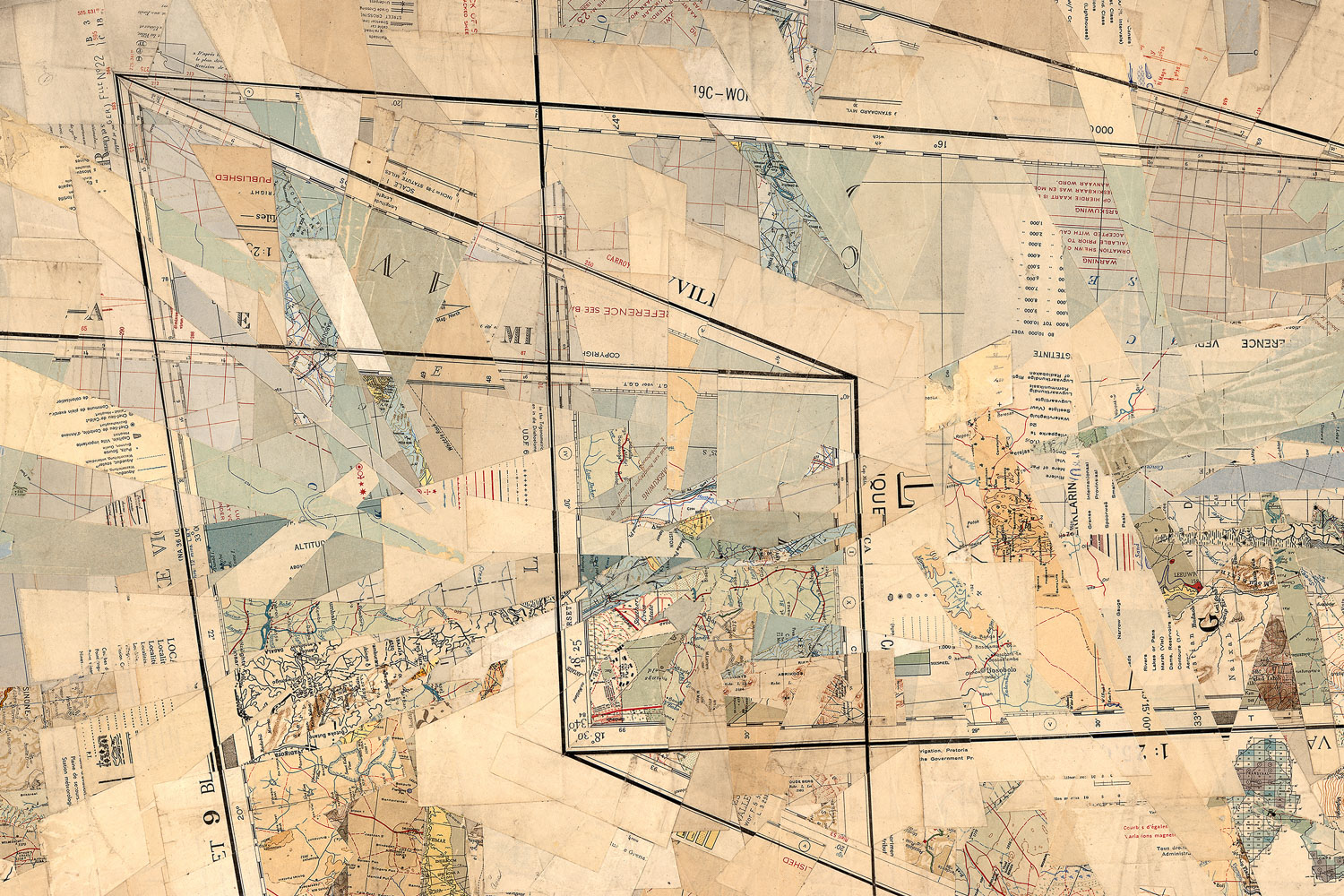

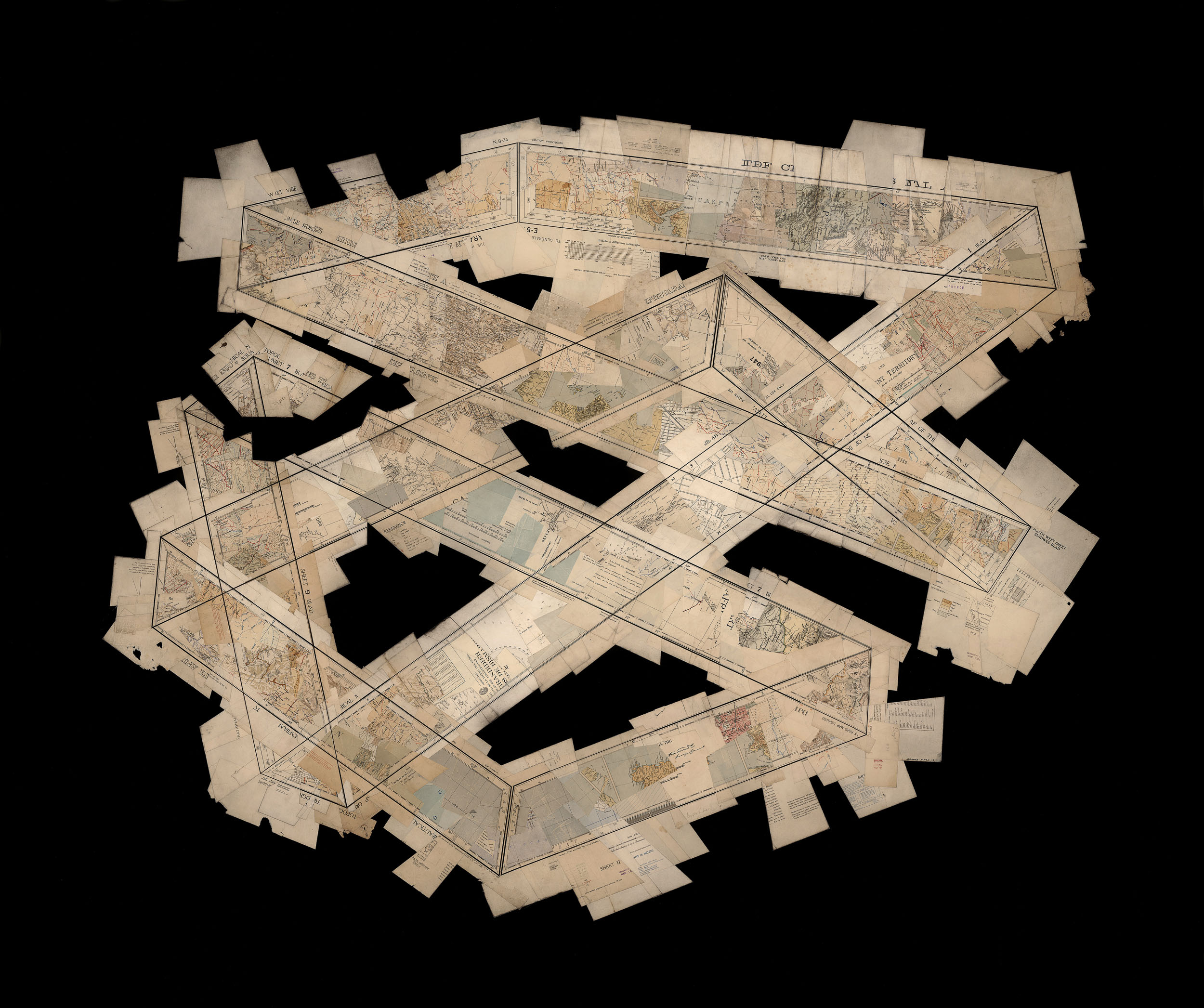
Migrant, 2018
Reconfigured Map Fragments on Acrylic-Polyurethane Ground and Canvas
180 x 220cm

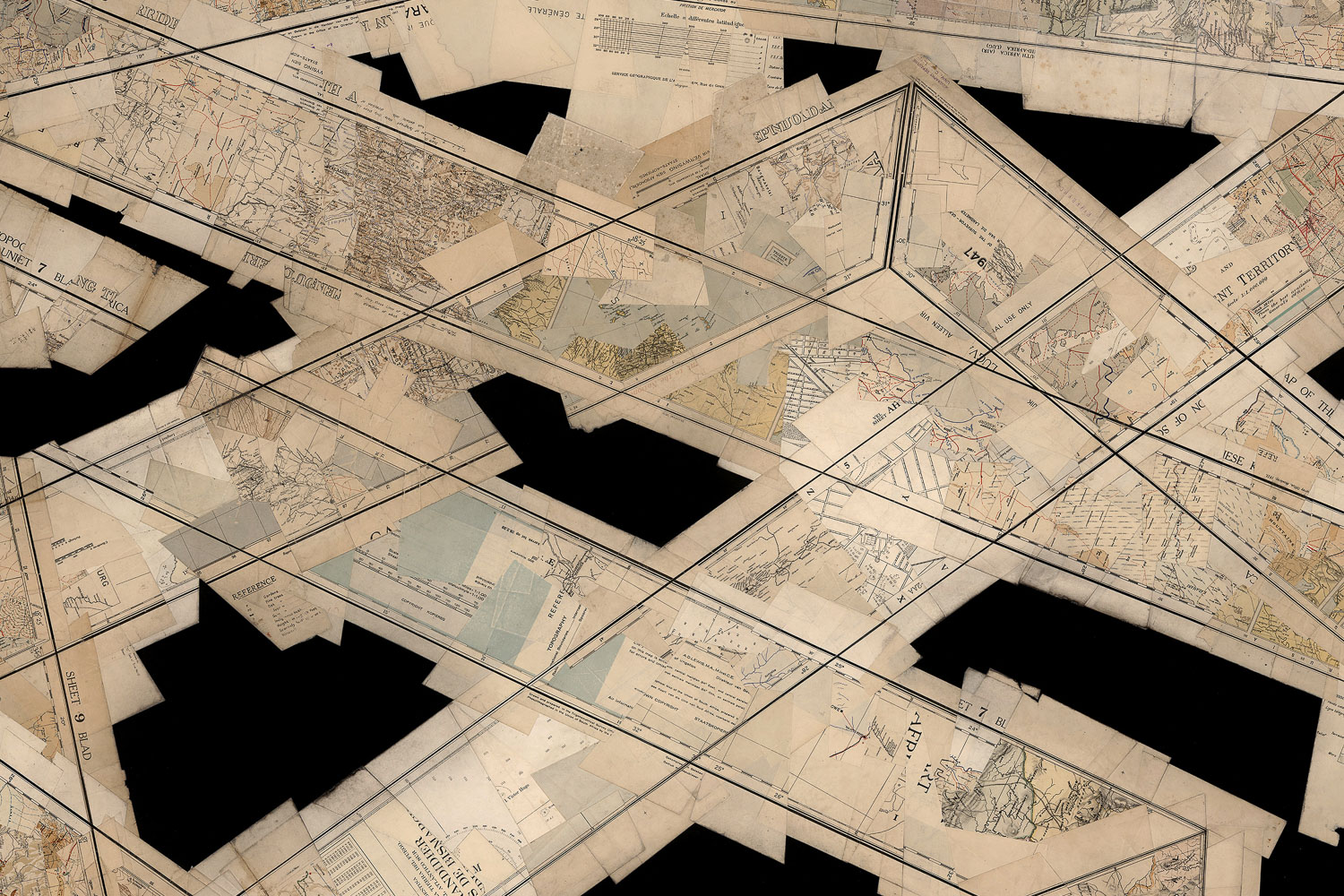
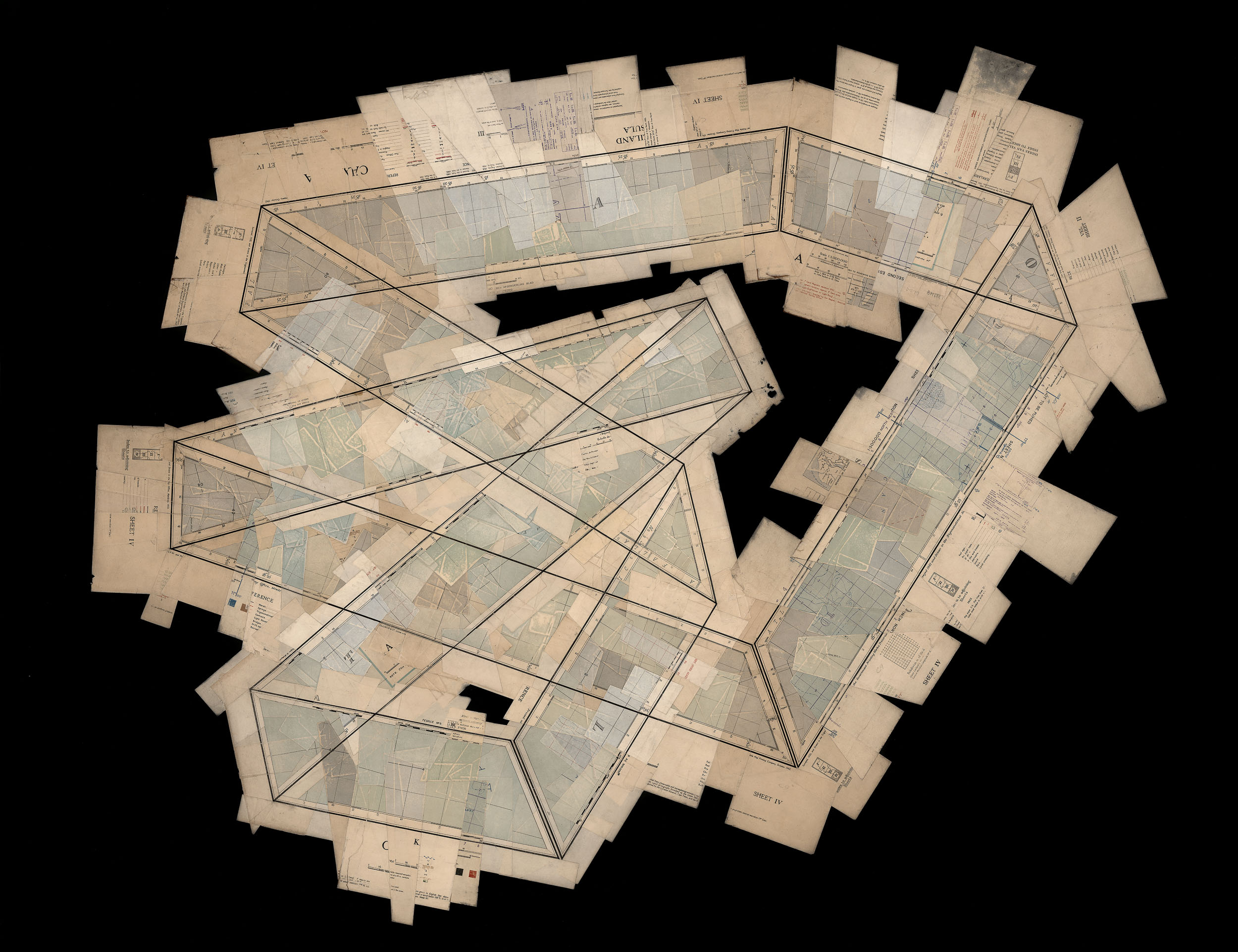
Ocean Crossing, 2018
Reconfigured Map Fragments on Acrylic-Polyurethane Ground and Canvas
140 x 180cm

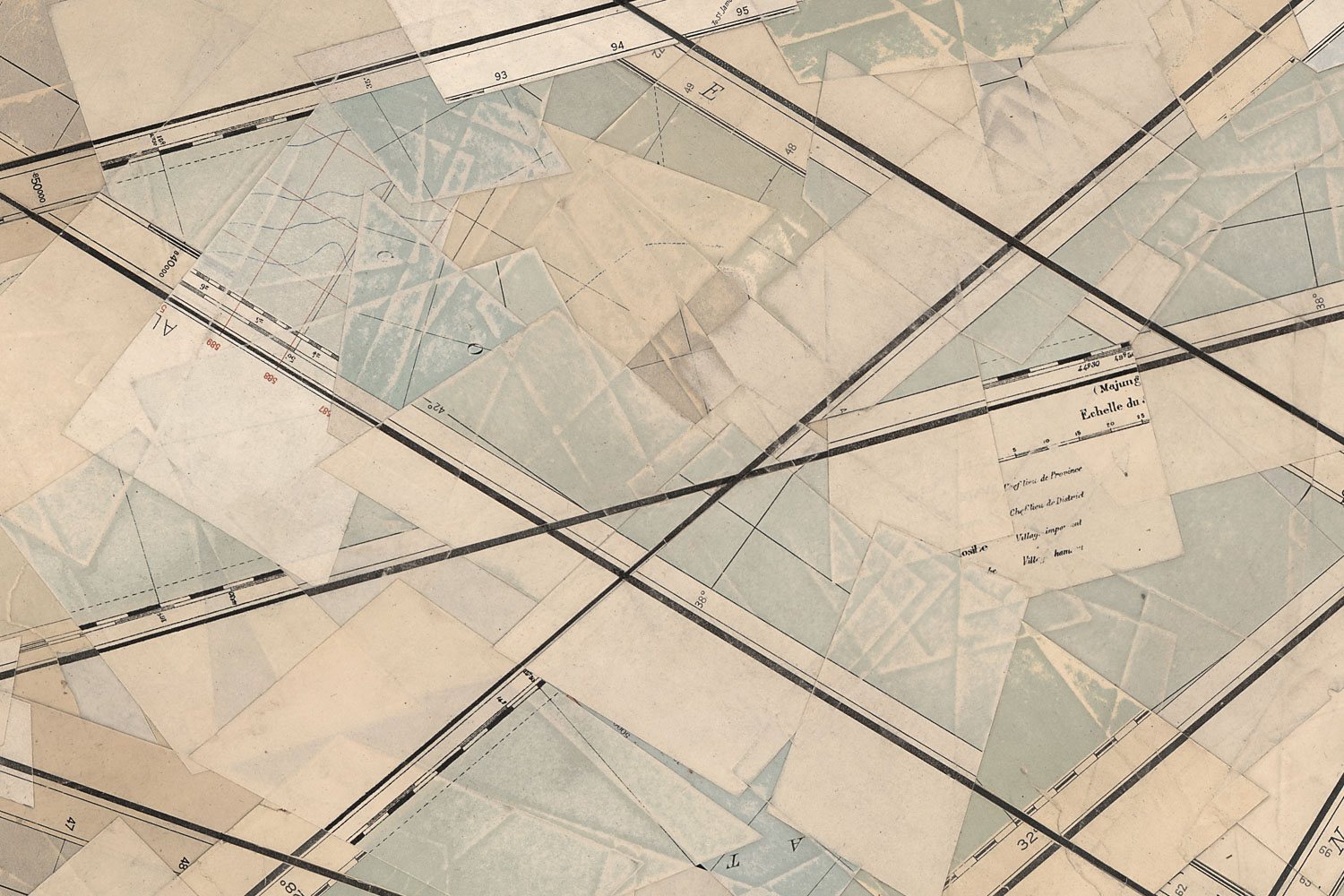

Antaeus In Mid-Air, 2018
Reconfigured Map fragments on Acrylic-Polyurethane Ground and Canvas
180 x 220cm

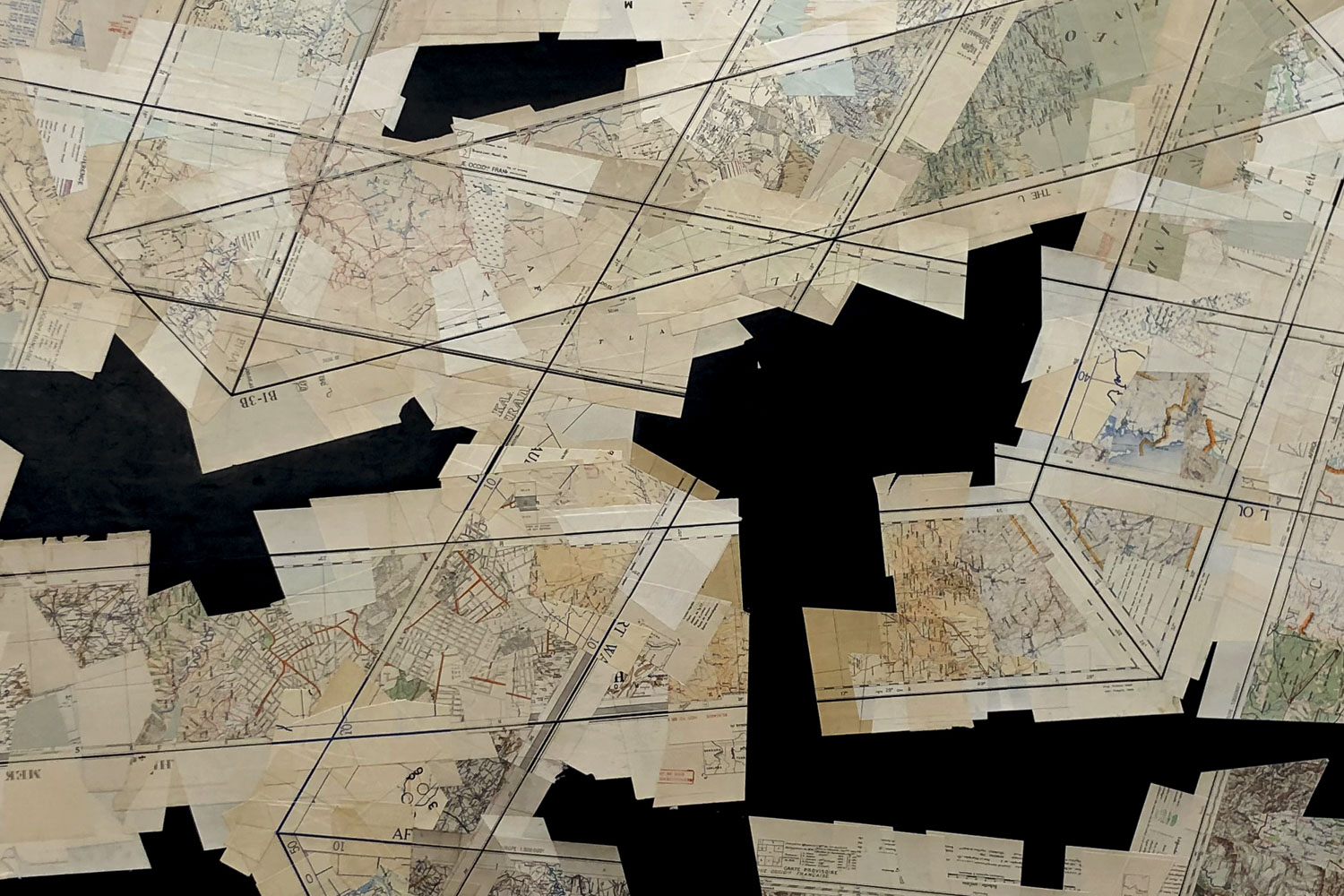
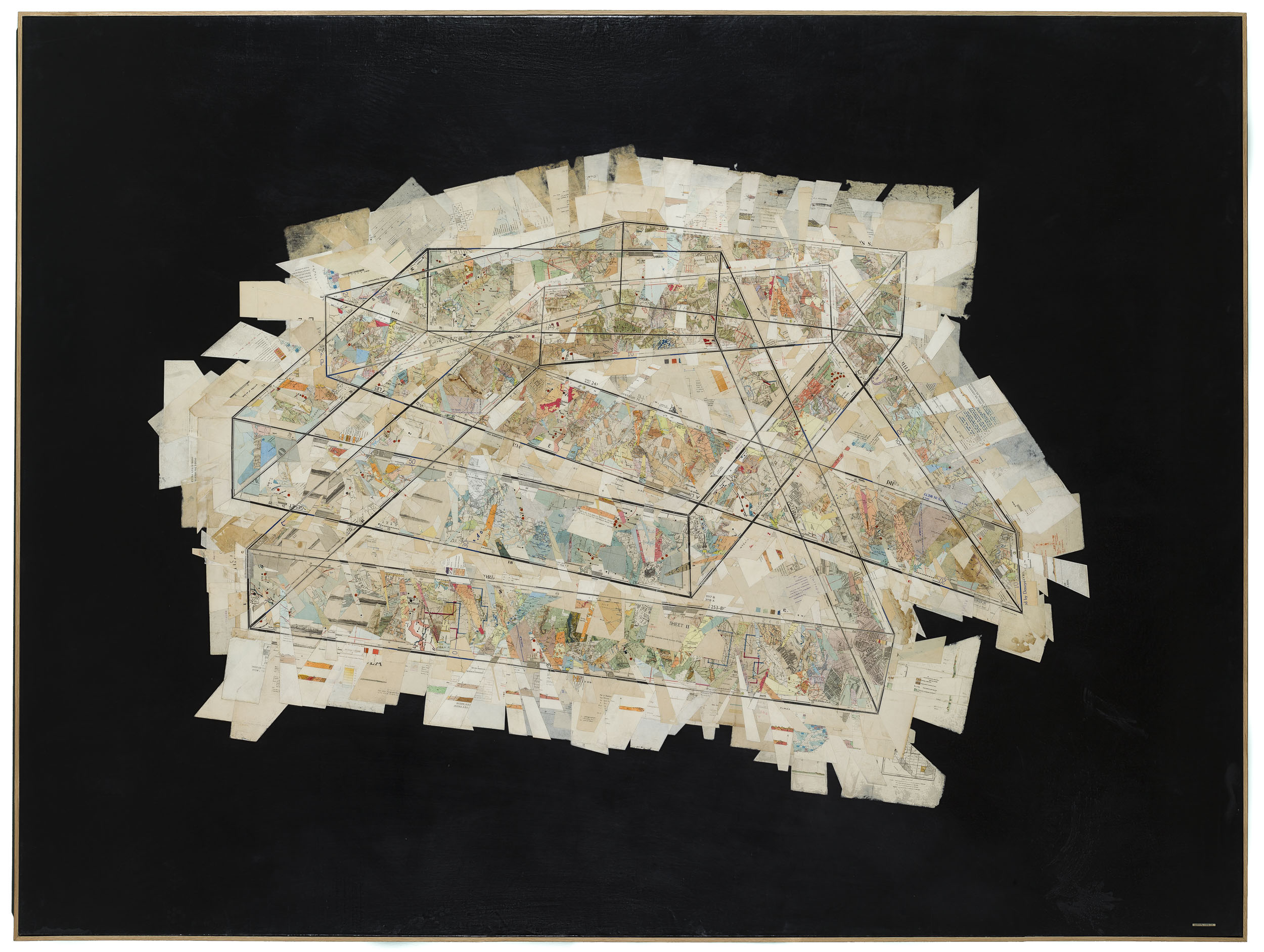
Circumscription, 2017
Cut and Reconstituted Map Fragments on Acrylic ground and canvas
180 x 240cm



Plot, 2017
Cut and Reconstituted Map Fragments on Acrylic ground and canvas
180 x 140cm



Transparent (Layering), 2017
Cut and Reconstituted Map Fragments on Acrylic ground and canvas



Circumscription, 2017
Cut and Reconstituted Map fragments on canvas and acrylic ground
240 x180cm



Slippage, 2017
Cut and Reconstituted Map Fragments on Acrylic ground with canvass and wooden substrate
120 x 120cm



Transparent (Swivel), 2017
Cut and Reconstituted Map Fragments on Acrylic ground and canvas



Landslide, 2017
Cut and Reconstituted Map Fragments on Acrylic ground and canvas
180 x 140cm


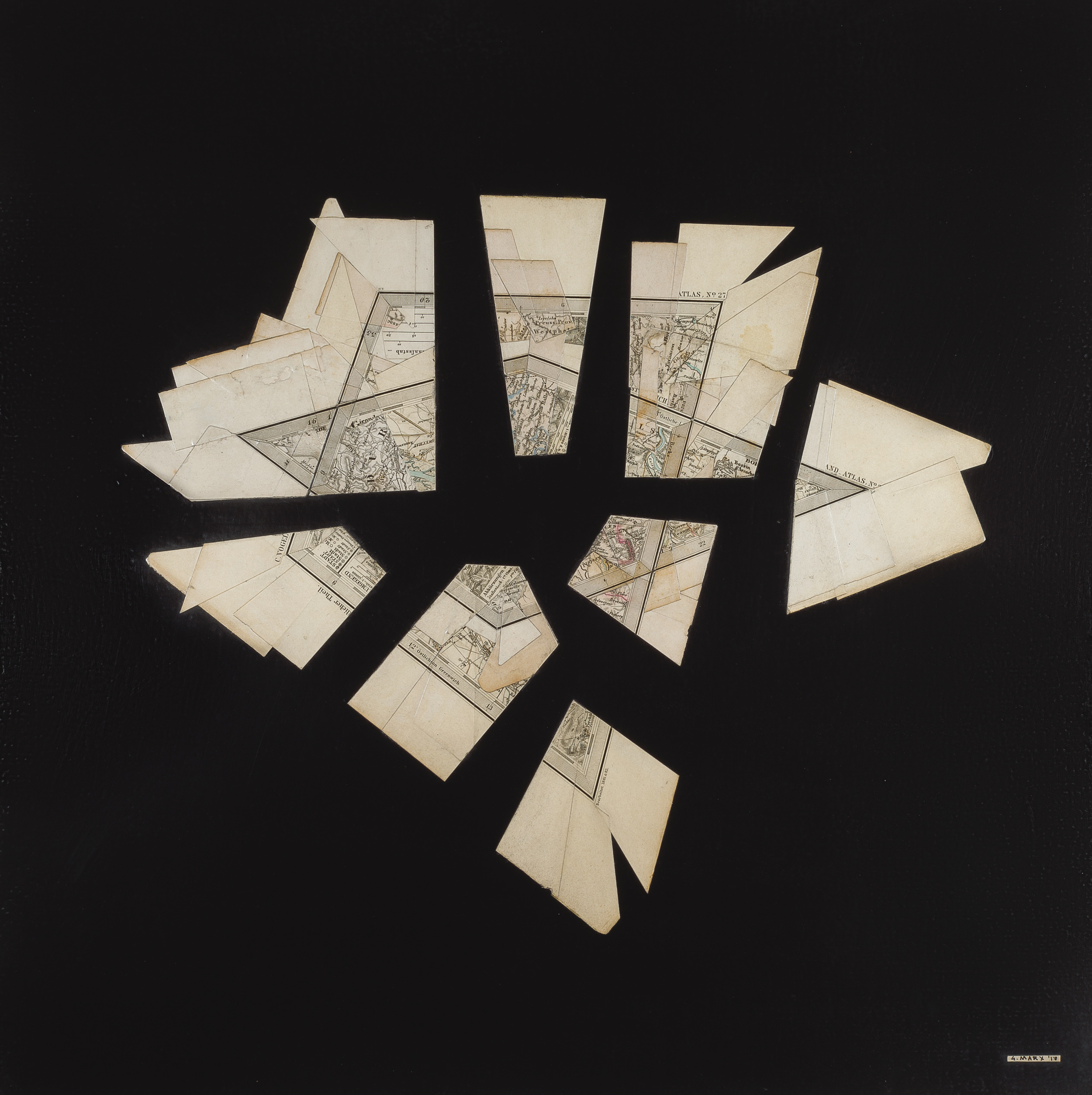
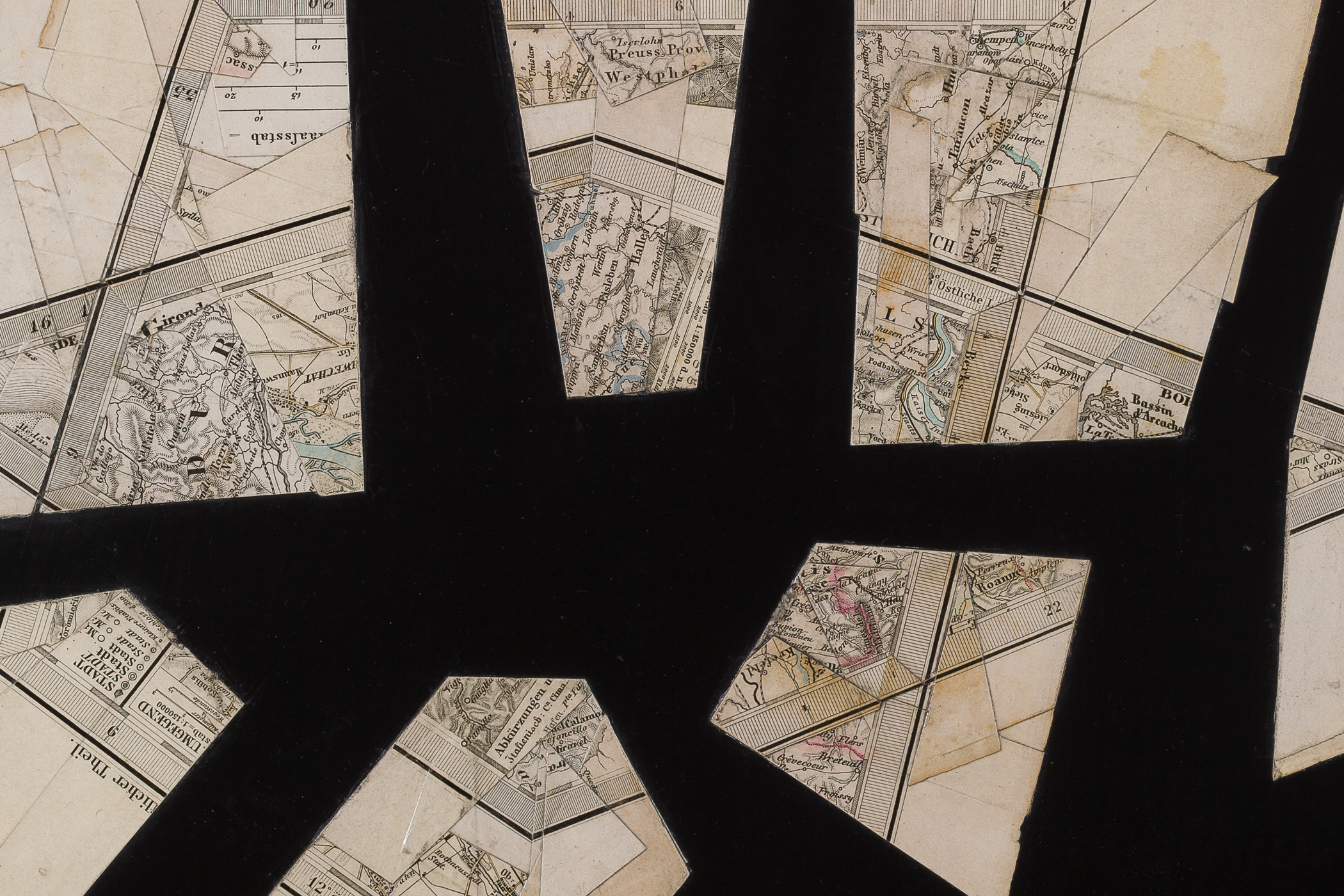
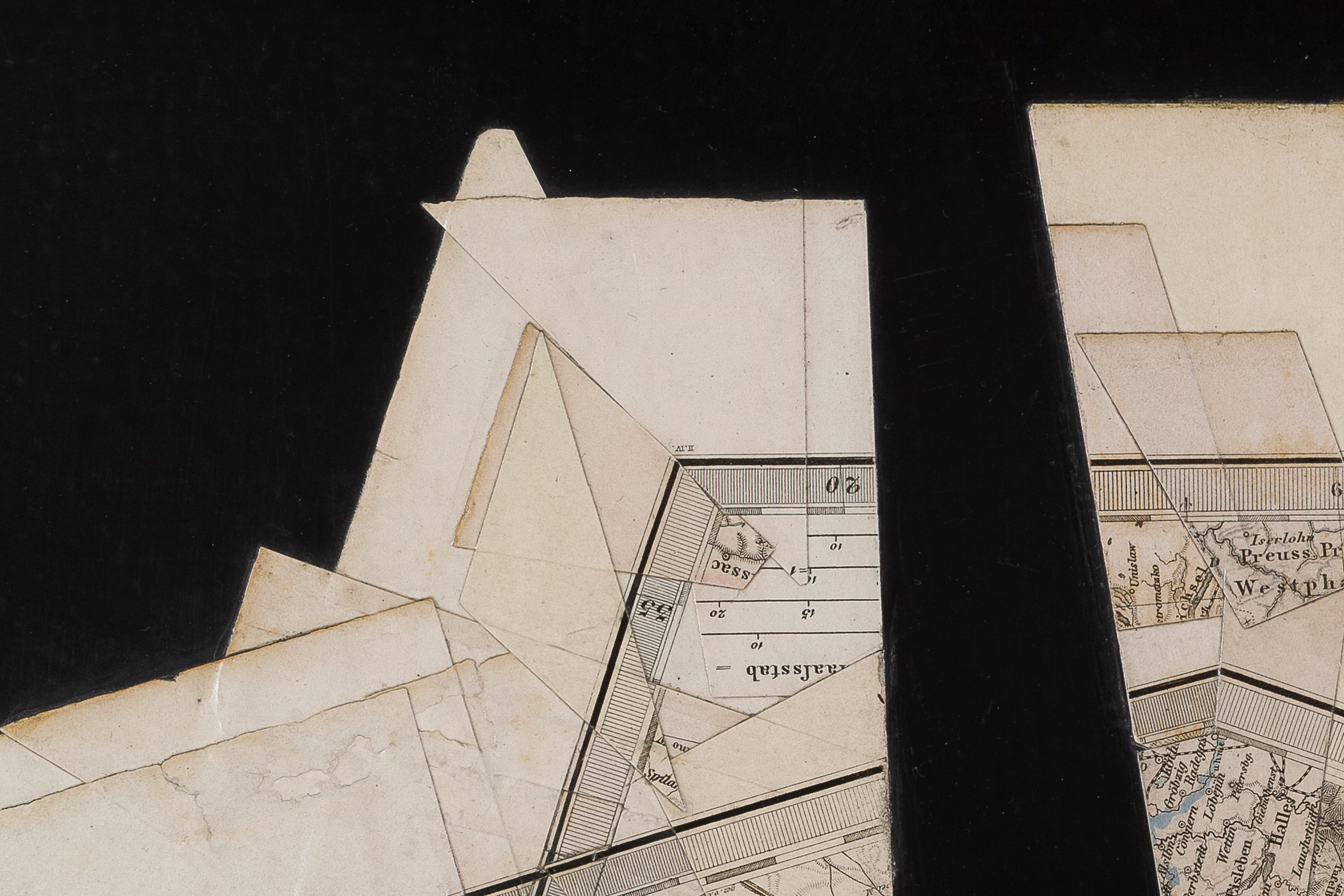
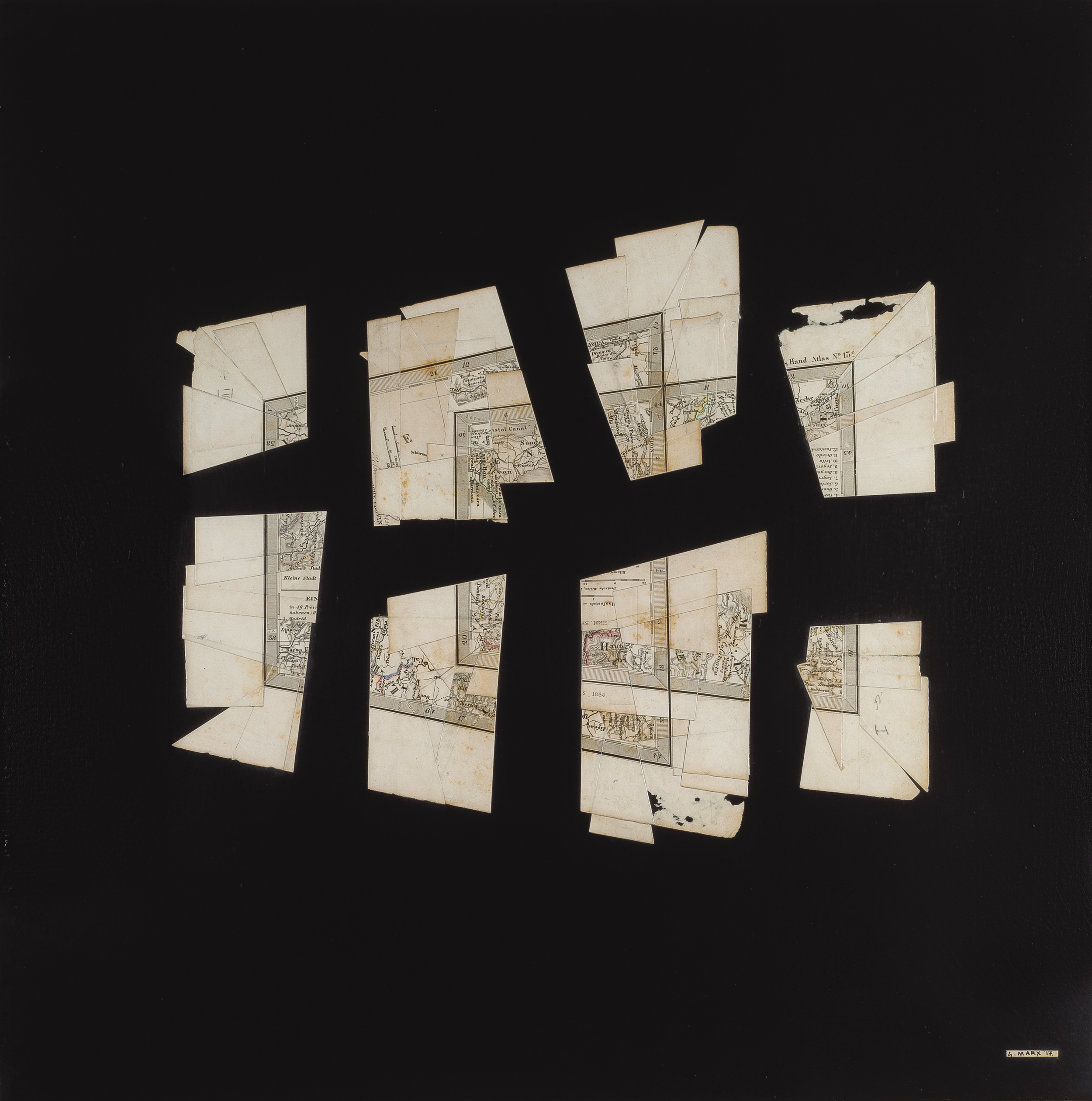
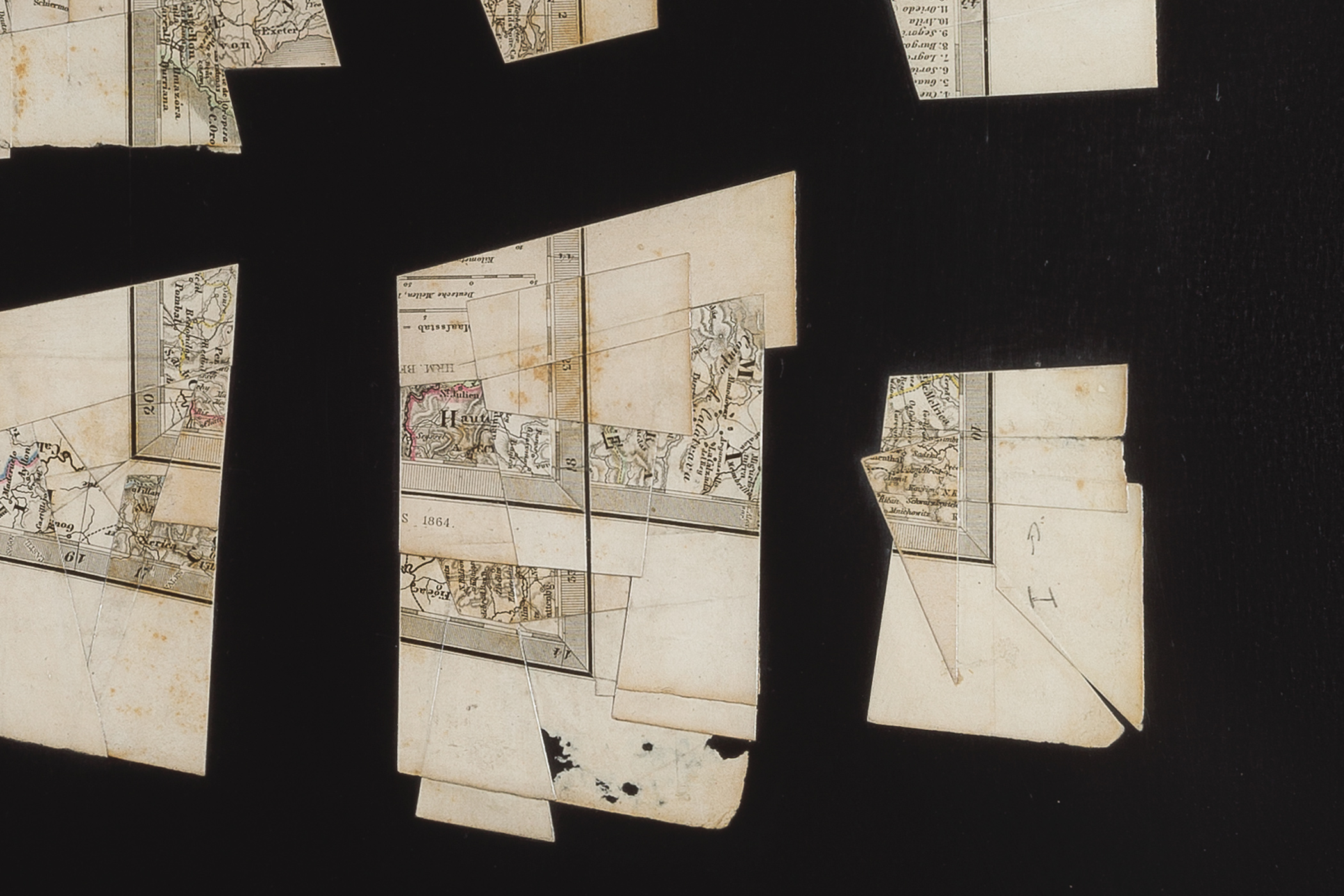
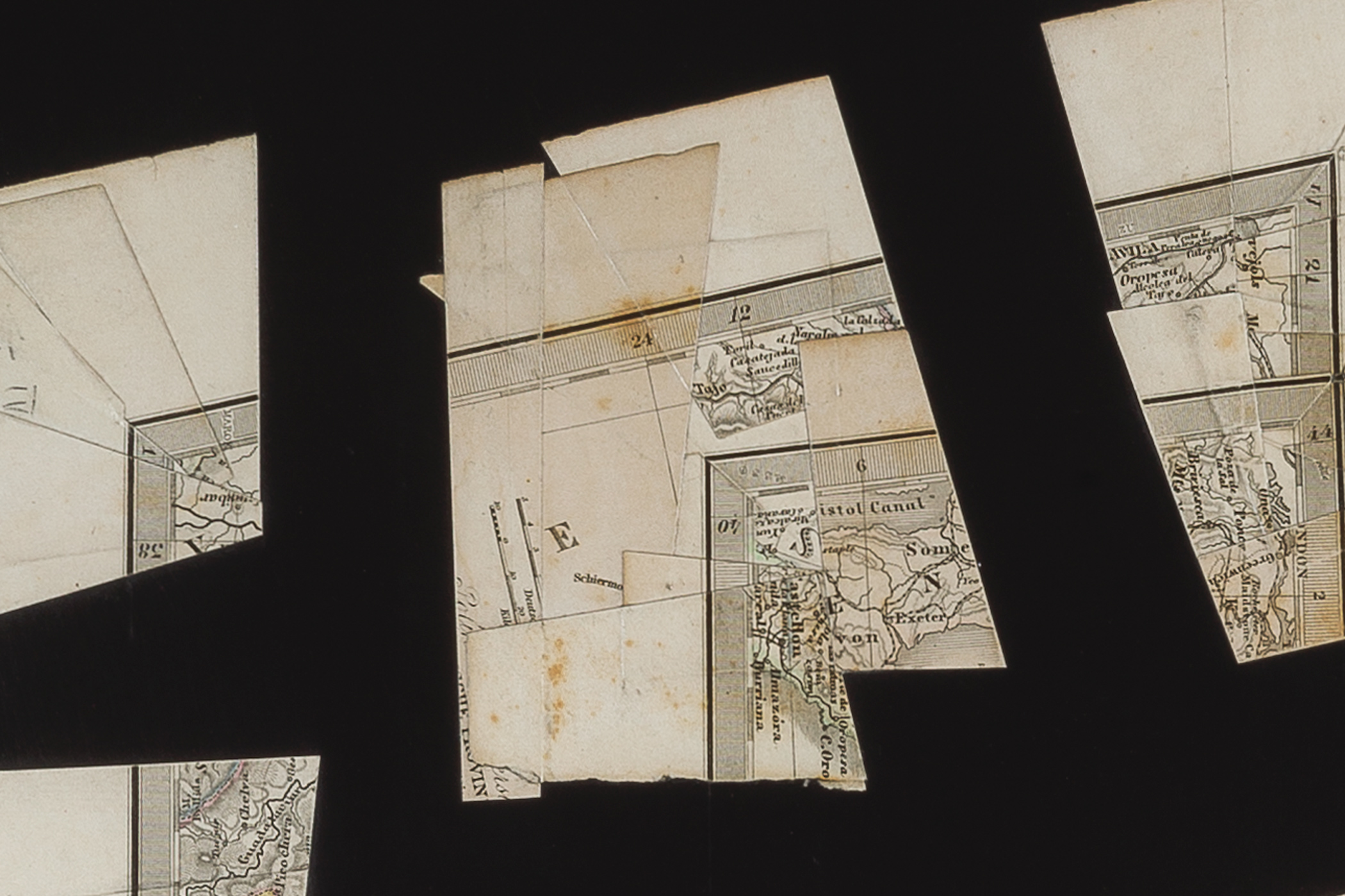

Reiteration (Transparent Territory), 2016
Cut and reconstituted map fragments and acrylic ground on canvas
180 x 120cm



A Small Escalating Refrain (Transparent Territory), 2016
Cut and reconstituted map fragments and acrylic ground on canvas
45 x 45cm



A Small Reiteration (Transparent Territory), 2016
Cut and reconstituted map fragments and acrylic ground on canvas
45 x 45cm



Transparent Territory, Perpetual Proximity, 2016
Cut and reconstituted map fragments and acrylic ground on canvas
100 x 100cm



Transparent Territory 2, 2016
Cut and reconstituted Map Fragments
70 x 70cm



Transparent Territory 3, 2016
Cut and reconstituted Map Fragments
70 x 70cm
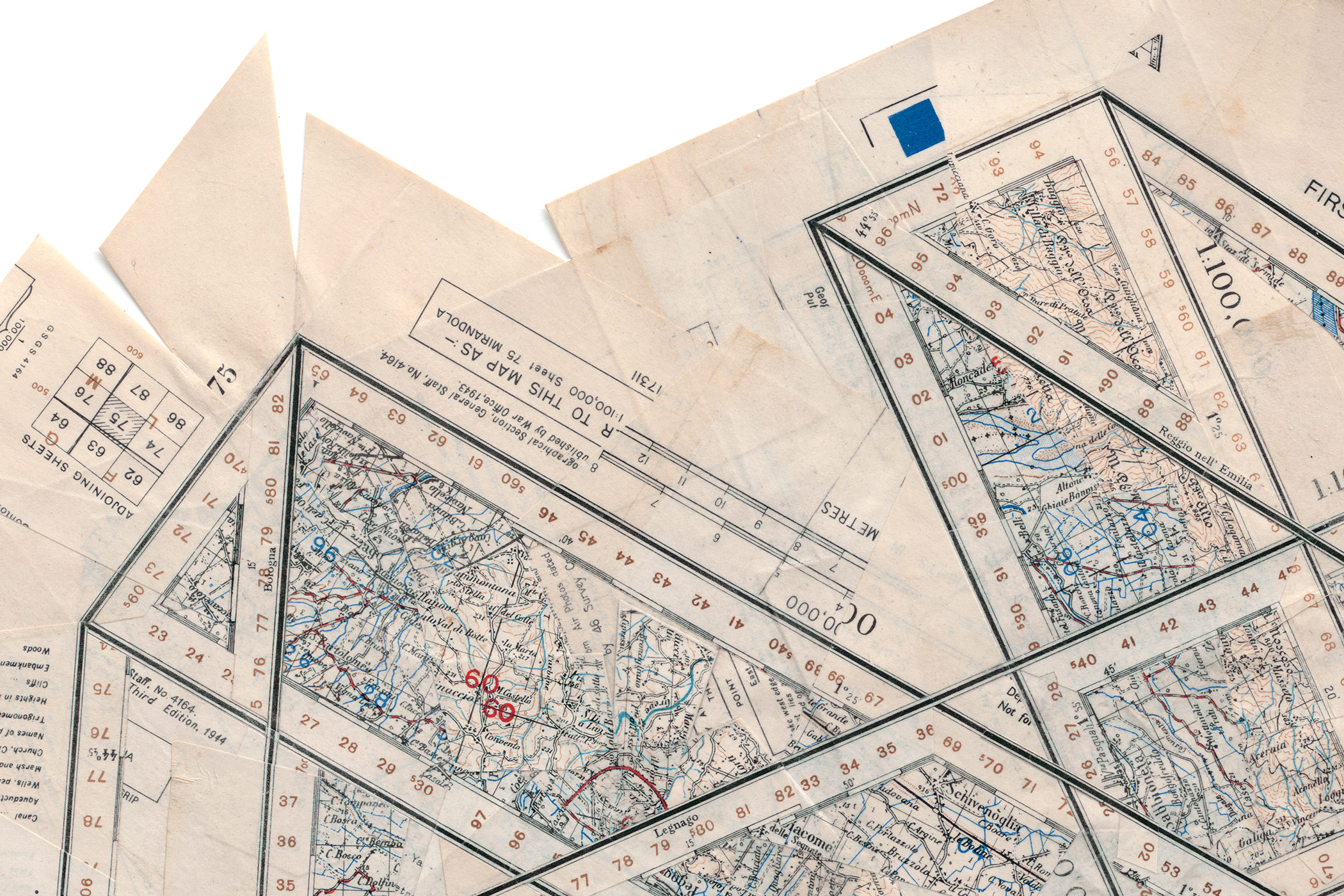


Transparent Territory 1, 2016
Cut and reconstituted Map Fragments
85 x 85cm

